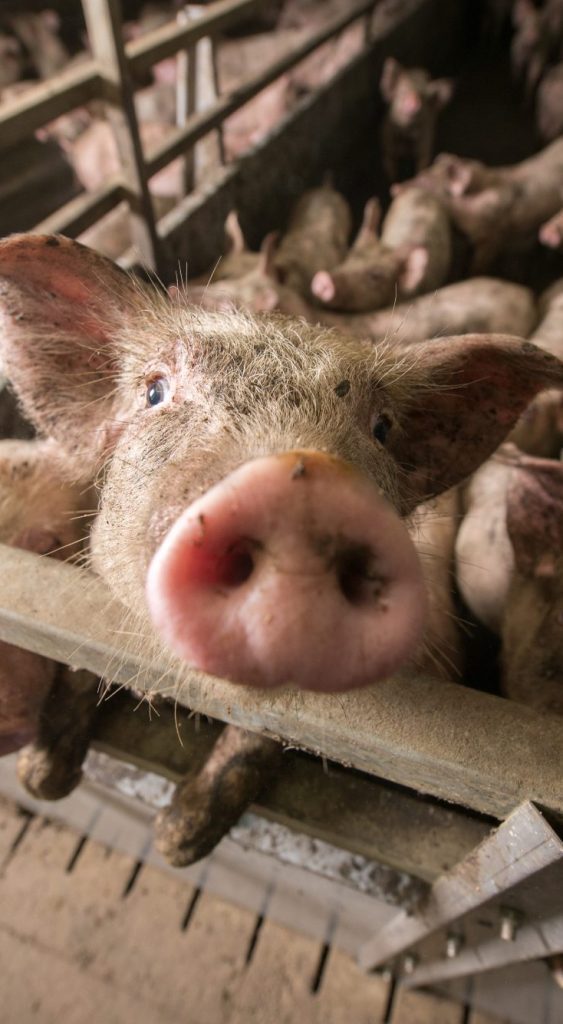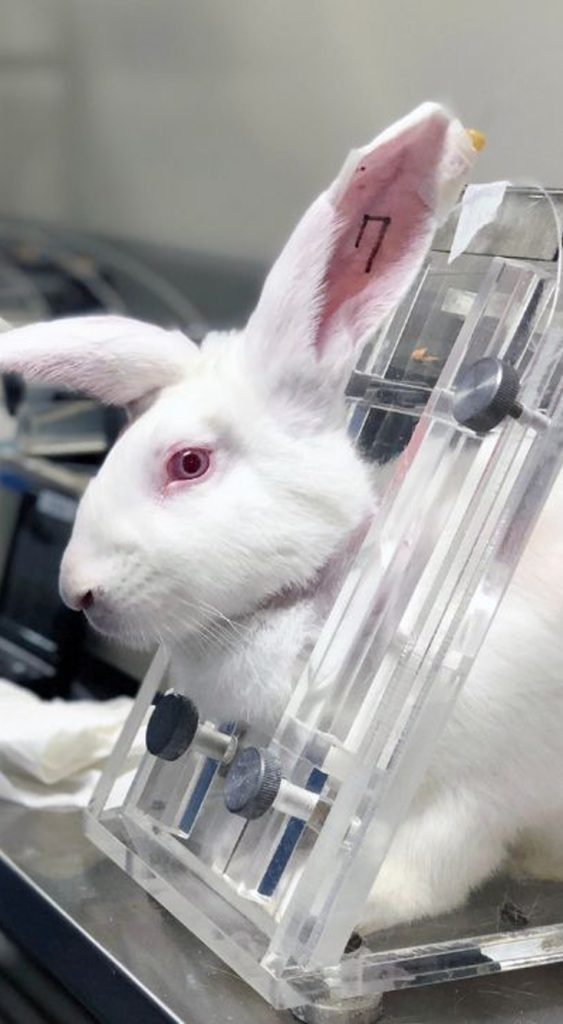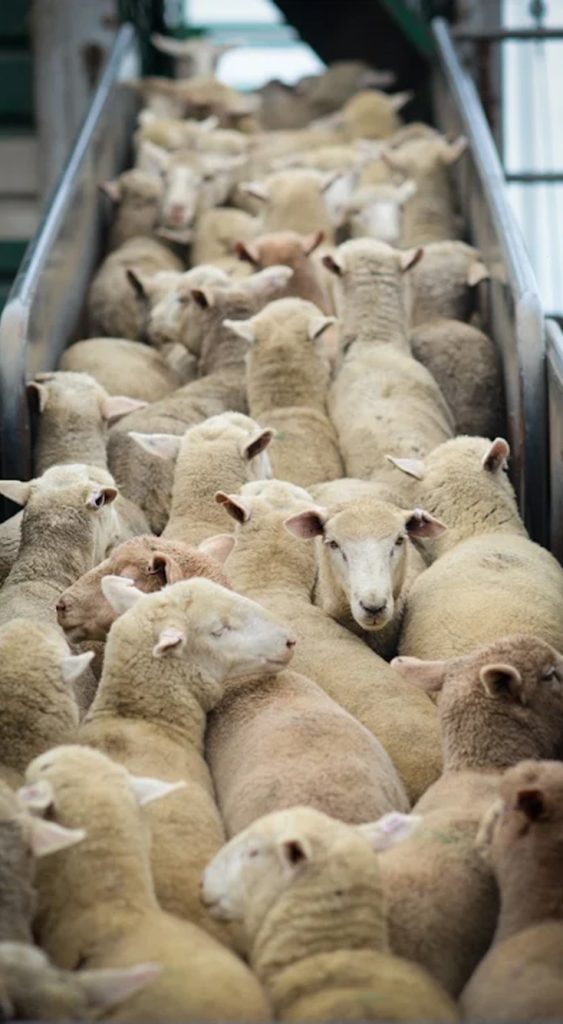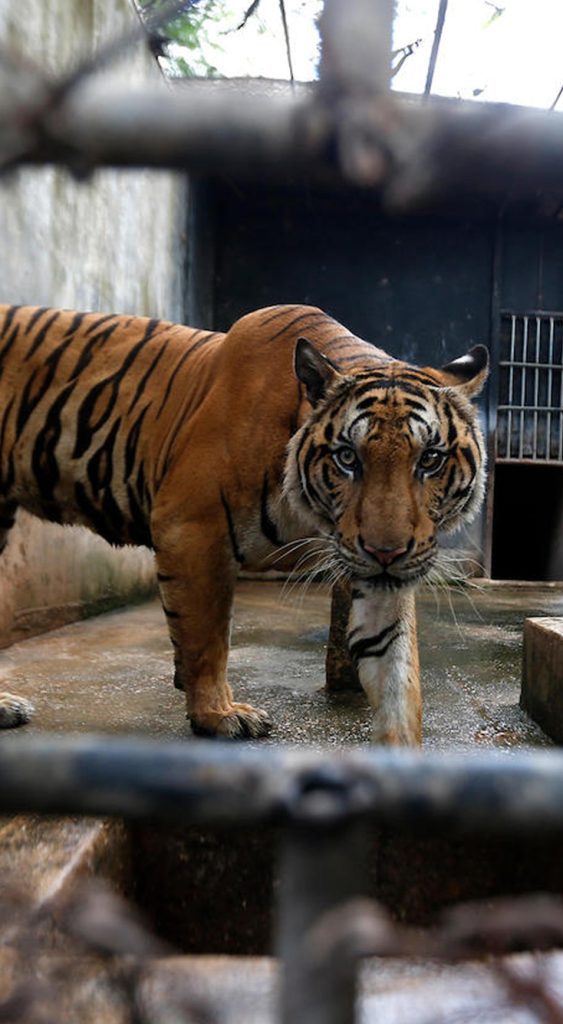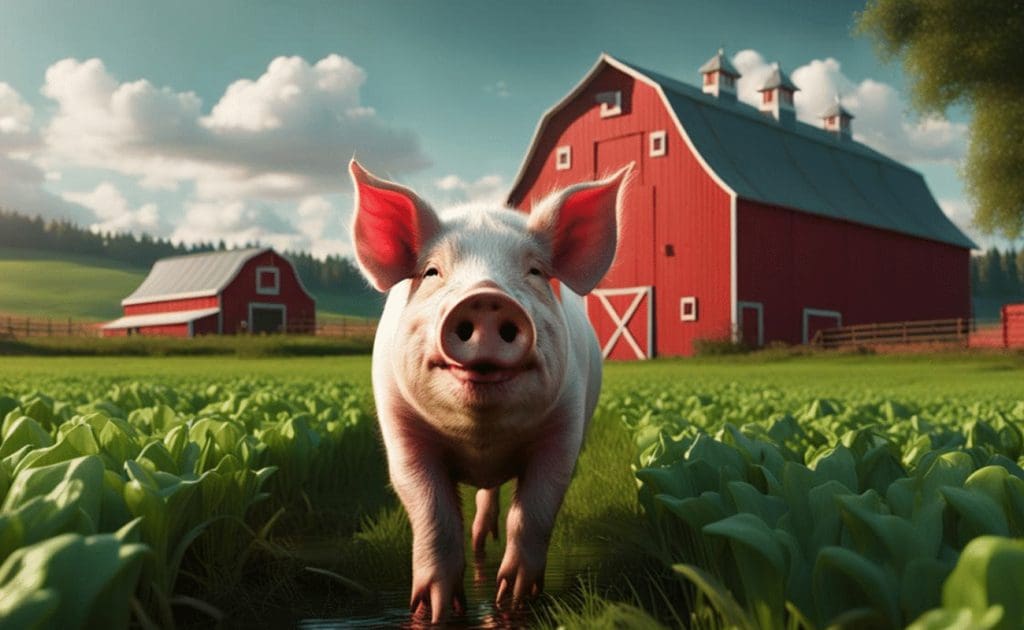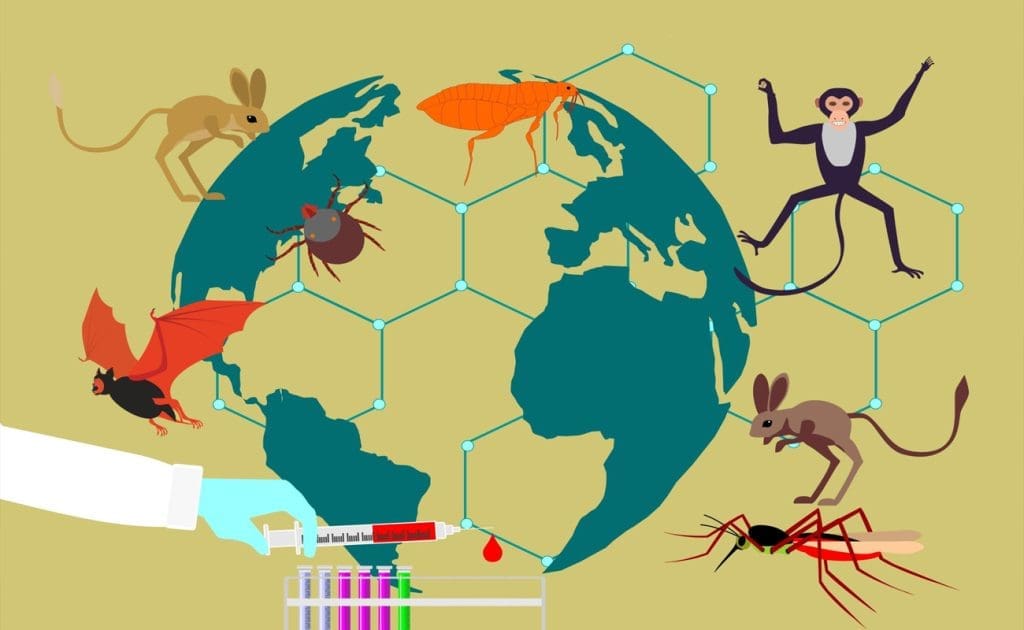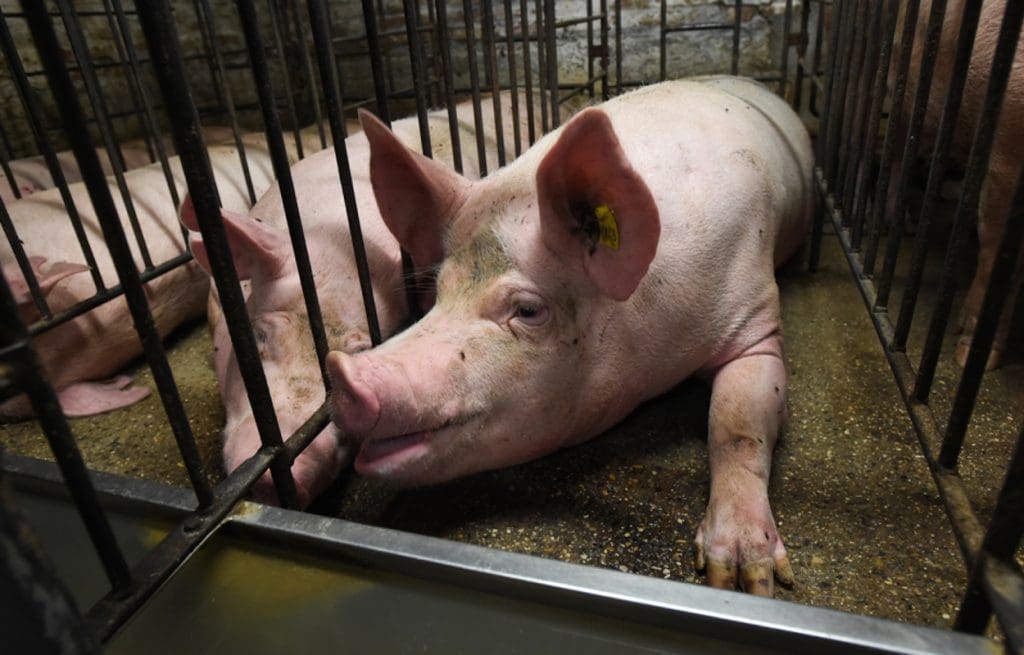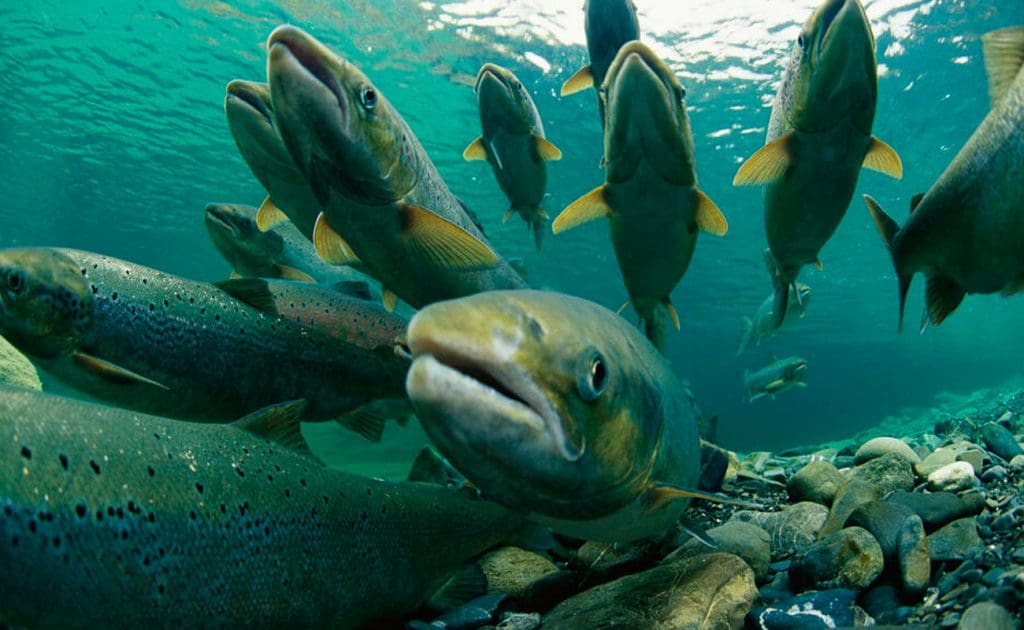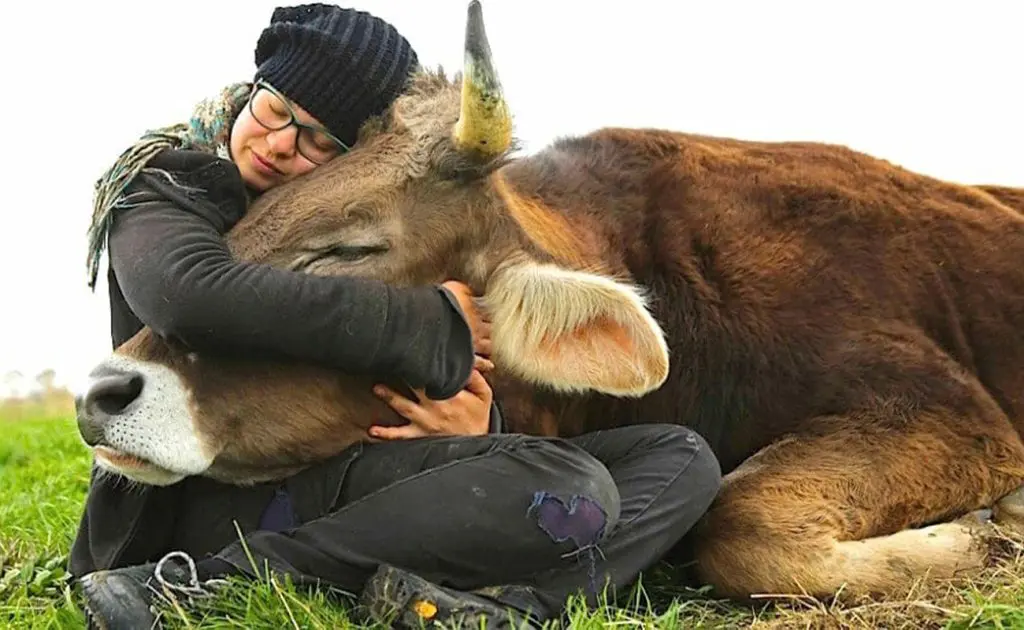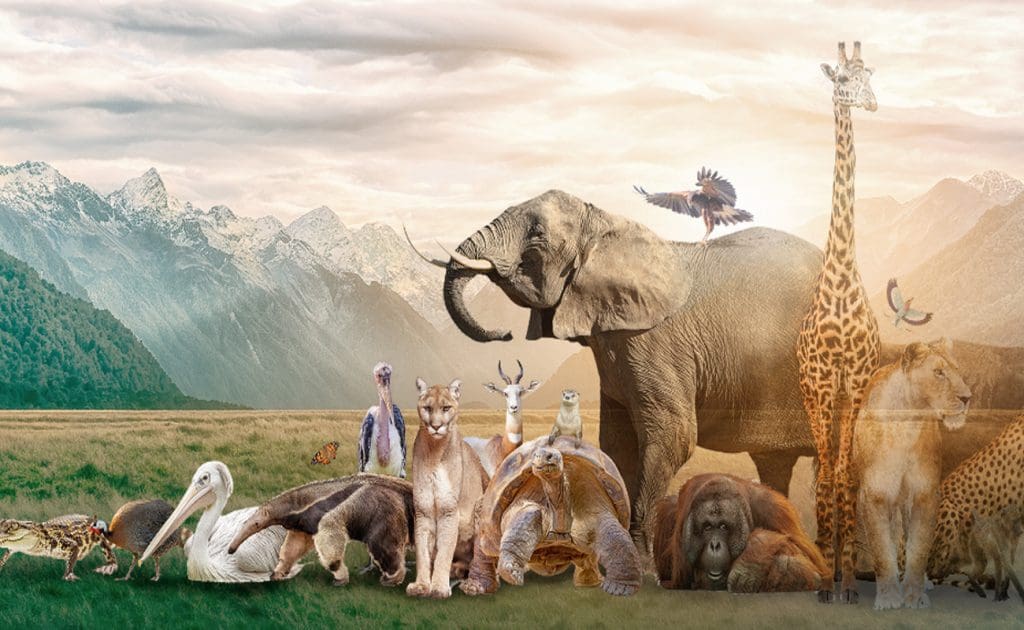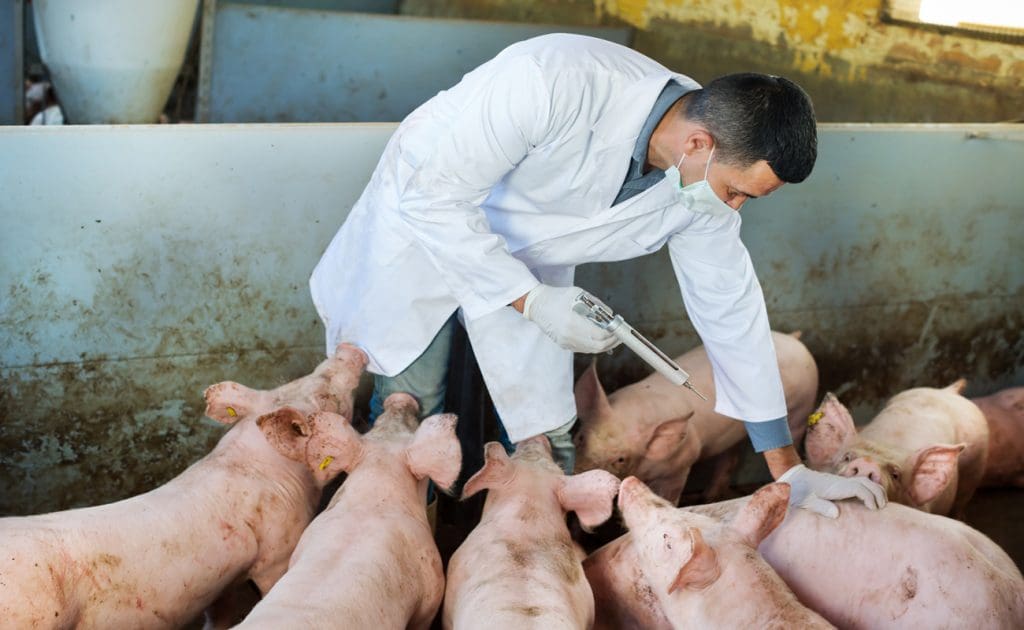
15,000 ਲੀਟਰ
ਪਾਣੀ ਦੇ ਸਿਰਫ ਇਕ ਕਿਲੋਗ੍ਰਾਮ ਬੀਫ - ਇਕ ਵਧੀਆ ਉਦਾਹਰਣ ਪੈਦਾ ਕਰਨ ਦੀ ਇਕ ਬਿਲਕੁਲ ਉਦਾਹਰਣ ਹੈ ਕਿ ਪਸ਼ੂ ਉਦਾਹਰਣ ਕਿਵੇਂ ਦੁਨੀਆ ਦਾ ਤਾਜ਼ਾ ਪਾਣੀ ਦਾ ਸੇਵਨ ਹੁੰਦਾ ਹੈ ਦੀ ਇਕ ਤਿਹਾਈ. [1]

80%
ਐਮਾਜ਼ਾਨ ਵਜ਼ਨ ਦੇ ਵਹਾਅ ਦੇ ਪਸ਼ੂ ਰੈਂਕ ਦੇ ਕਾਰਨ ਹੁੰਦੇ ਹਨ - ਦੁਨੀਆ ਦੇ ਸਭ ਤੋਂ ਵੱਡੇ ਮੀਂਹ ਦੇ ਜੰਗਲਾਂ ਦੀ ਤਬਾਹੀ ਦੇ ਵਿਨਾਸ਼ ਦੇ ਪਿੱਛੇ ਇਕ ਦੋਸ਼ੀ. [2]
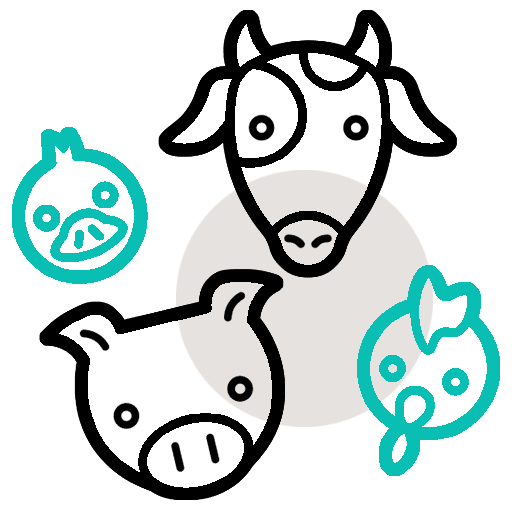
77%
ਪਸ਼ੂ ਪਾਲਣ ਅਤੇ ਜਾਨਵਰਾਂ ਦੇ ਭੋਜਨ ਲਈ ਗਲੋਬਲ ਖੇਤੀਬਾੜੀ ਜ਼ਮੀਨ ਦੀ ਵਰਤੋਂ ਕੀਤੀ ਜਾਂਦੀ ਹੈ - ਫਿਰ ਵੀ ਇਹ ਦੁਨੀਆ ਦੀਆਂ ਸਿਰਫ 18% ਕੈਲੋਰੀ ਅਤੇ ਇਸ ਦੇ ਪ੍ਰੋਟੀਨ ਦਾ 37% ਪ੍ਰਦਾਨ ਕਰਦਾ ਹੈ. [3]

ਜੀ.ਐਚ.
ਉਦਯੋਗਿਕ ਪਸ਼ੂ ਖੇਤੀਬਾੜੀ ਪੂਰੀ ਗਲੋਬਲ ਆਵਾਜਾਈ ਖੇਤਰ ਦੇ ਜੋੜ ਨਾਲੋਂ ਗ੍ਰੀਨਹਾਉਸ ਗੈਸਾਂ ਤਿਆਰ ਕਰਦੀ ਹੈ. [4]

92 ਬਿਲੀਅਨ
ਦੁਨੀਆ ਦੇ ਜ਼ਮੀਨੀ ਜਾਨਵਰ ਹਰ ਸਾਲ ਭੋਜਨ ਲਈ ਮਾਰੇ ਜਾਂਦੇ ਹਨ - ਅਤੇ ਉਨ੍ਹਾਂ ਵਿਚੋਂ 99% ਫੈਕਟਰੀ ਫਾਰਮਾਂ 'ਤੇ ਜ਼ਿੰਦਗੀ ਨੂੰ ਸਹਿਣ ਕਰਦੇ ਹਨ. [5]

400+ ਕਿਸਮਾਂ
ਜ਼ਹਿਰੀਲੇ ਗੈਸਾਂ ਅਤੇ 300+ ਮਿਲੀਅਨ ਟਨ ਰੂਮ ਦੀ, ਫੈਕਟਰੀ ਫਾਰਮਾਂ ਦੁਆਰਾ ਤਿਆਰ ਕੀਤੀ ਗਈ, ਸਾਡੀ ਹਵਾ ਅਤੇ ਪਾਣੀ ਨੂੰ ਜ਼ਹਿਰੀਲੀ. [6]

1,048 ਮਿਲੀਅਨ ਟਨ
ਅਨਾਜ ਦੇ ਸਾਲਾਨਾ ਪਸ਼ੂਆਂ ਨੂੰ ਖੁਆਇਆ ਜਾਂਦਾ ਹੈ - ਗਲੋਬਲ ਹੰਜਰ ਨੂੰ ਖਤਮ ਕਰਨ ਲਈ ਕਾਫ਼ੀ ਬਾਰ ਬਾਰ ਆਗਾ. [7]

37%
ਮੀਥੇਨ ਦੇ ਨਿਕਾਸ ਦਾ ਆਧਾਰਿਤ ਹਾਇਸਸ਼ਨਾਂ ਆਉਂਦੇ ਹਨ - ਇੱਕ ਗ੍ਰੀਨਹਾਉਸ ਗੈਸ ਮੁਕਾਬਲੇ ਨਾਲੋਂ 80 ਗੁਣਾ ਵਧੇਰੇ ਸ਼ਕਤੀਸ਼ਾਲੀ. [8]
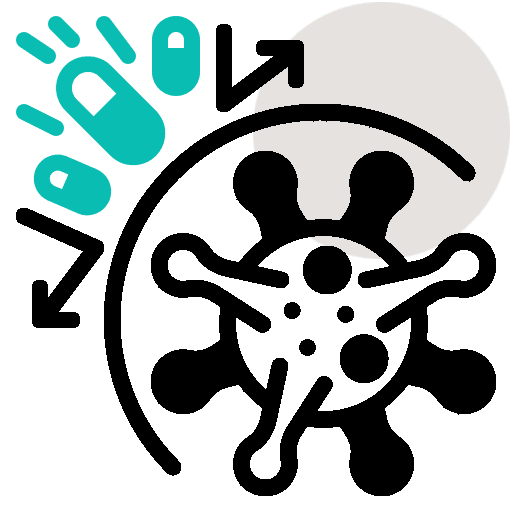
80%
ਗਲੋਬਲ ਤੌਰ 'ਤੇ ਰੋਗਾਣੂਨਾਸ਼ਕ ਦੀ ਵਰਤੋਂ ਕਰਨ ਵਾਲੇ ਫੈਕਟਰੀ ਖੇਤ ਵਾਲੇ ਜਾਨਵਰਾਂ ਵਿੱਚ ਕੀਤੀ ਜਾਂਦੀ ਹੈ, ਐਂਟੀਬਾਇਓਟਿਕ ਪ੍ਰਤੀਰੋਧ ਨੂੰ ਵਧਾਉਂਦੀ ਹੈ. [9]

1 ਤੋਂ 2.8 ਟ੍ਰਿਲੀਅਨ
ਸਮੁੰਦਰੀ ਪਸ਼ੂ ਮੱਛੀ ਫੜਨ ਅਤੇ ਜਲ-ਭਰਤੀ ਕਰਕੇ ਸਾਲਾਨਾ ਮਾਰੇ ਜਾਂਦੇ ਹਨ - ਜ਼ਿਆਦਾਤਰ ਜਾਨਵਰਾਂ ਦੇ ਖੇਤੀਬਾੜੀ ਅੰਕੜਿਆਂ ਵਿੱਚ ਸਭ ਤੋਂ ਵੱਧ ਗਿਣਿਆ ਜਾਂਦਾ ਹੈ. [10]

60%
ਗਲੋਬਲ ਜੈਵ ਵਿਭਿੰਨਤਾ ਦਾ ਨੁਕਸਾਨ ਭੋਜਨ ਉਤਪਾਦਨ ਨਾਲ ਜੁੜਿਆ ਹੁੰਦਾ ਹੈ - ਪਸ਼ੂ ਖੇਤੀਬਾੜੀ ਦੇ ਨਾਲ ਪ੍ਰਮੁੱਖ ਡਰਾਈਵਰ ਹੋਣਾ. [11]

75%
ਗਲੋਬਲ ਖੇਤੀਬਾੜੀ ਜ਼ਮੀਨਾਂ ਦੇ, ਜੇ ਦੁਨੀਆਂ ਨੇ ਪੌਦੇ ਦੇ ਅਧਾਰਤ ਡਾਈਟਾਂ ਨੂੰ ਅਪਣਾਇਆ ਤਾਂ - ਚੀਨ ਅਤੇ ਯੂਰਪੀਅਨ ਯੂਨੀਅਨ ਦੇ ਮਿਸ਼ਰਣ ਨੂੰ ਅਨਲੌਕ ਕਰਨਾ. [12]

ਅਸੀਂ ਕੀ ਕਰਦੇ ਹਾਂ
ਸਭ ਤੋਂ ਵਧੀਆ ਚੀਜ਼ ਜੋ ਅਸੀਂ ਕਰ ਸਕਦੇ ਹਾਂ ਉਹ ਹੈ ਜੋ ਅਸੀਂ ਖਾਣ ਦੇ ਤਰੀਕੇ ਨੂੰ ਬਦਲਣਾ. ਪੌਦਾ-ਅਧਾਰਤ ਖੁਰਾਕ ਸਾਡੇ ਗ੍ਰਹਿ ਅਤੇ ਵਿਭਿੰਨ ਪ੍ਰਜਾਤੀਆਂ ਦੋਵਾਂ ਲਈ ਵਧੇਰੇ ਹਮਦਰਦੀ ਦੀ ਚੋਣ ਹੁੰਦੀ ਹੈ ਜੋ ਅਸੀਂ ਇਕੱਠੇ ਕਰਦੇ ਹਾਂ.

ਧਰਤੀ ਨੂੰ ਬਚਾਓ
ਪਸ਼ੂ ਖੇਤੀਬਾੜੀ ਜੈਵਿਕ ਵਿਭਿੰਨਤਾ ਅਤੇ ਸਪੀਸੀਜ਼ ਦੇ ਛੁਟਕਾਰੇ ਦਾ ਪ੍ਰਮੁੱਖ ਕਾਰਨ ਹੈ ਜੋ ਵਿਸ਼ਵ ਵਾਤਾਵਰਣ ਨੂੰ ਗੰਭੀਰ ਖ਼ਤਰਾ ਪੈਦਾ ਕਰਦੀ ਹੈ.
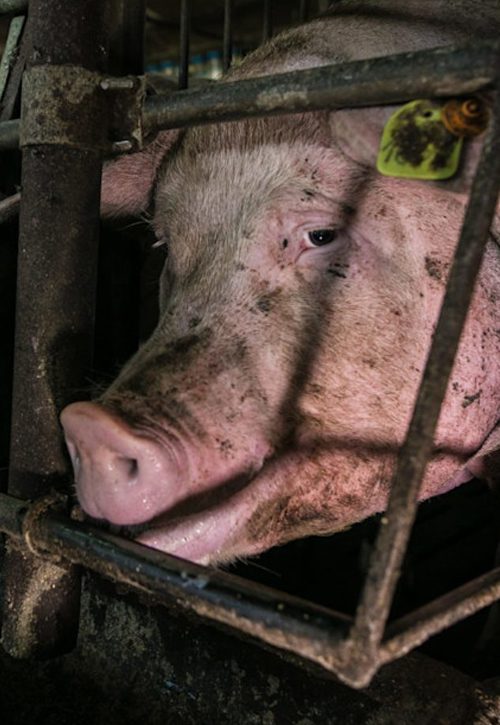
ਉਨ੍ਹਾਂ ਦੇ ਦੁੱਖ ਨੂੰ ਖਤਮ ਕਰੋ
ਫੈਕਟਰੀ ਖੇਤੀ ਮੀਟ ਅਤੇ ਜਾਨਵਰਾਂ ਦੇ ਪ੍ਰਾਪਤ ਉਤਪਾਦਾਂ ਦੀ ਖਪਤਕਾਰਾਂ ਦੀ ਮੰਗ 'ਤੇ ਭਾਰੀ ਨਿਰਭਰ ਕਰਦੀ ਹੈ. ਹਰ ਪੌਦੇ-ਅਧਾਰਤ ਖਾਣਾ ਬੇਰੁਜ਼ਗਾਰ ਅਤੇ ਸ਼ੋਸ਼ਣ ਦੇ ਜਾਨਵਰਾਂ ਦੇ ਵਾਤਾਵਰਣ ਵਿੱਚ ਮੁਕਤ ਕਰਨ ਵਿੱਚ ਯੋਗਦਾਨ ਪਾਉਂਦਾ ਹੈ.

ਪੌਦਿਆਂ 'ਤੇ ਪ੍ਰਫੁੱਲਤ
ਪੌਦਿਆਂ-ਅਧਾਰਿਤ ਭੋਜਨ ਨਾ ਸਿਰਫ਼ ਸੁਆਦੀ ਹੁੰਦੇ ਹਨ, ਸਗੋਂ ਜ਼ਰੂਰੀ ਵਿਟਾਮਿਨਾਂ ਅਤੇ ਖਣਿਜਾਂ ਨਾਲ ਵੀ ਭਰਪੂਰ ਹੁੰਦੇ ਹਨ ਜੋ ਊਰਜਾ ਵਧਾਉਂਦੇ ਹਨ ਅਤੇ ਸਮੁੱਚੀ ਤੰਦਰੁਸਤੀ ਨੂੰ ਉਤਸ਼ਾਹਿਤ ਕਰਦੇ ਹਨ। ਪੌਦਿਆਂ-ਅਮੀਰ ਖੁਰਾਕ ਨੂੰ ਅਪਣਾਉਣਾ ਪੁਰਾਣੀਆਂ ਬਿਮਾਰੀਆਂ ਨੂੰ ਰੋਕਣ ਅਤੇ ਲੰਬੇ ਸਮੇਂ ਦੀ ਸਿਹਤ ਦਾ ਸਮਰਥਨ ਕਰਨ ਲਈ ਇੱਕ ਪ੍ਰਭਾਵਸ਼ਾਲੀ ਰਣਨੀਤੀ ਹੈ।
ਫੈਕਟਰੀ ਫਾਰਮਿੰਗ ਬੇਰਹਿਮੀ:
ਜਿੱਥੇ ਜਾਨਵਰ ਚੁੱਪਚਾਪ ਦੁੱਖ ਝੱਲਦੇ ਹਨ, ਅਸੀਂ ਉਨ੍ਹਾਂ ਦੀ ਆਵਾਜ਼ ਬਣਦੇ ਹਾਂ।
ਖੇਤੀਬਾੜੀ ਵਿੱਚ ਜਾਨਵਰਾਂ ਦਾ ਦੁੱਖ
ਜਿਥੇ ਵੀ ਜਾਨਵਰਾਂ ਨੂੰ ਨੁਕਸਾਨ ਪਹੁੰਚਾਇਆ ਜਾਂਦਾ ਹੈ ਜਾਂ ਉਨ੍ਹਾਂ ਦੀਆਂ ਆਵਾਜ਼ਾਂ ਵਿੱਚ ਅਣਦੇਖੀ ਹੁੰਦੀ ਹੈ, ਅਸੀਂ ਜ਼ੁਲਮ ਅਤੇ ਚੈਂਪੀਅਨ ਰਹਿਮ ਦਾ ਸਾਹਮਣਾ ਕਰਨ ਲਈ ਕਦਮ ਰੱਖਦੇ ਹਾਂ. ਅਸੀਂ ਬੇਇਨਸਾਫ਼ੀ ਨੂੰ ਬੇਨਕਾਬ ਕਰਨ ਲਈ ਅਣਥੱਕ ਮਿਹਨਤ ਨਾਲ ਕੰਮ ਕਰਦੇ ਹਾਂ, ਚੱਲ ਰਹੇ ਬਦਲਾਅ, ਅਤੇ ਜਾਨਵਰਾਂ ਦੀ ਰੱਖਿਆ ਕਰਦੇ ਜਿੱਥੇ ਉਨ੍ਹਾਂ ਦੀ ਭਲਾਈ ਨੂੰ ਧਮਕਾਇਆ ਜਾਂਦਾ ਹੈ.
ਸੰਕਟ
ਸਾਡੇ ਭੋਜਨ ਉਦਯੋਗਾਂ ਦੇ ਪਿੱਛੇ ਸੱਚ
ਸਾਡੇ ਭੋਜਨ ਉਦਯੋਗਾਂ ਦੇ ਪਿੱਛੇ ਦੀ ਸੱਚਾਈ ਫੈਕਟਰੀ ਫਾਰਮਿੰਗ ਬੇਰਹਿਮੀ , ਜਿੱਥੇ ਅਰਬਾਂ ਜਾਨਵਰ ਹਰ ਸਾਲ ਬਹੁਤ ਜ਼ਿਆਦਾ ਦੁੱਖ ਝੱਲਦੇ ਹਨ। ਜਾਨਵਰਾਂ ਦੀ ਭਲਾਈ , ਉਦਯੋਗਿਕ ਖੇਤੀ ਵਾਤਾਵਰਣ ਨੂੰ ਗੰਭੀਰ ਨੁਕਸਾਨ , ਜਲਵਾਯੂ ਪਰਿਵਰਤਨ ਕੇ ਜੈਵ ਵਿਭਿੰਨਤਾ ਦੇ ਨੁਕਸਾਨ ਤੱਕ। ਇਸ ਦੇ ਨਾਲ ਹੀ, ਇਹ ਪ੍ਰਣਾਲੀ ਮੋਟਾਪਾ, ਸ਼ੂਗਰ ਅਤੇ ਦਿਲ ਦੀ ਬਿਮਾਰੀ ਸਮੇਤ ਵਧ ਰਹੇ ਸਿਹਤ ਜੋਖਮਾਂ ਵਿੱਚ ਯੋਗਦਾਨ ਪਾਉਂਦੀ ਹੈ। ਪੌਦਿਆਂ-ਅਧਾਰਤ ਖੁਰਾਕ ਦੀ ਚੋਣ ਕਰਨਾ ਟਿਕਾਊ ਰਹਿਣ-ਸਹਿਣ ਦੀਆਂ ਅਪਣਾਉਣਾ ਇੱਕ ਸ਼ਕਤੀਸ਼ਾਲੀ ਹੱਲ ਪੇਸ਼ ਕਰਦਾ ਹੈ - ਜਾਨਵਰਾਂ ਦੇ ਦੁੱਖਾਂ ਨੂੰ , ਗ੍ਰਹਿ ਦੀ ਰੱਖਿਆ ਕਰਨਾ ਅਤੇ ਮਨੁੱਖੀ ਸਿਹਤ ।
ਮੀਟ ਉਦਯੋਗ
ਮੀਟ ਲਈ ਜਾਨਵਰ ਮਾਰੇ ਗਏ
ਜਾਨਵਰ ਆਪਣੇ ਮਾਸ ਲਈ ਮਾਰੇ ਗਏ ਪਸ਼ੂਆਂ ਨੇ ਉਸ ਦਿਨ ਦਾ ਜਨਮ ਲੈਣਾ ਸ਼ੁਰੂ ਕਰ ਦਿੱਤਾ. ਮੀਟ ਦਾ ਉਦਯੋਗ ਕੁਝ ਸਭ ਤੋਂ ਗੰਭੀਰ ਅਤੇ ਅਣਉਚਿਤ ਇਲਾਜ ਦੇ ਅਭਿਆਸਾਂ ਨਾਲ ਜੁੜਿਆ ਹੋਇਆ ਹੈ.

ਗਾਵਾਂ
ਦੁੱਖਾਂ ਵਿੱਚ ਜੰਮੇ, ਕਾਵਾਂ ਨੇ ਕਤਲੇਆਮ ਸ਼ੁਰੂ ਹੋਣ ਤੋਂ ਬਹੁਤ ਪਹਿਲਾਂ ਹੌਰਨ ਹਟਾਉਣ ਅਤੇ ਕਸ਼ਰ ਨੂੰ ਸਹਿਣਾ ਸਹਾਰਿਆ.
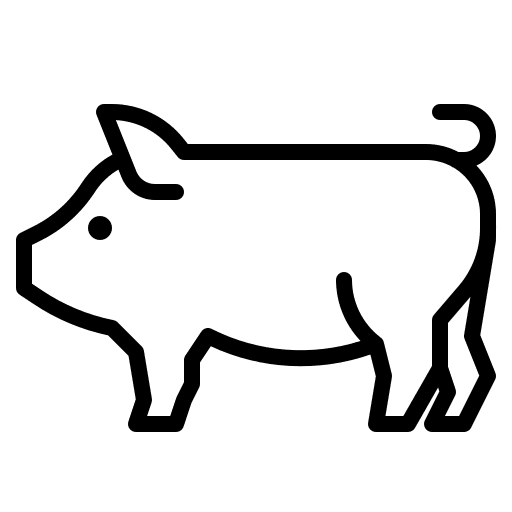
ਸੂਰ
ਸੂਰ, ਕੁੱਤਿਆਂ ਨਾਲੋਂ ਵਧੇਰੇ ਬੁੱਧੀਮਾਨ, ਆਪਣੀ ਜ਼ਿੰਦਗੀ ਟੁੱਟਪਕੇ, ਲਟਕੇ ਫਾਰਮਾਂ ਵਿੱਚ ਬਿਤਾਉਂਦੇ ਹਨ. Frame ਰਤ ਸੂਰ ਬਹੁਤ ਹੀ ਮੁਸਕਰਾਉਂਦੇ ਹਨ ਅਤੇ ਇਸ ਨੂੰ ਬਹੁਤ ਘੱਟ ਕਰੇਟ ਬਣਾਉਣ ਲਈ ਸੀਮਤ ਹਨ ਕਿ ਉਹ ਆਪਣੇ ਜਵਾਨ ਨੂੰ ਦਿਲਾਸਾ ਨਹੀਂ ਪਾ ਸਕਦੇ.
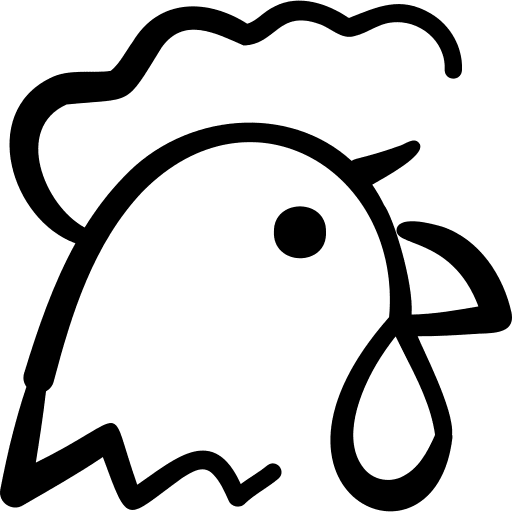
ਮੁਰਗੀ
ਮੁਰਗੀ ਫੈਕਟਰੀ ਖੇਤੀ ਤੋਂ ਸਭ ਤੋਂ ਭੈੜੀ ਸਹਿਣ ਕਰਦੇ ਹਨ. ਹਜ਼ਾਰਾਂ ਦੁਆਰਾ ਗੰਦੀ ਸ਼ੈਡਾਂ ਵਿੱਚ ਪੈਕ ਕੀਤਾ ਗਿਆ, ਉਹ ਇੰਨੀ ਤੇਜ਼ੀ ਨਾਲ ਉੱਗਣ ਲਈ ਨਸਲ ਲਗਾਉਂਦੇ ਹਨ. ਬਹੁਤੇ ਛੇ ਹਫ਼ਤਿਆਂ ਦੀ ਉਮਰ ਵਿੱਚ ਮਾਰੇ ਗਏ ਹਨ.
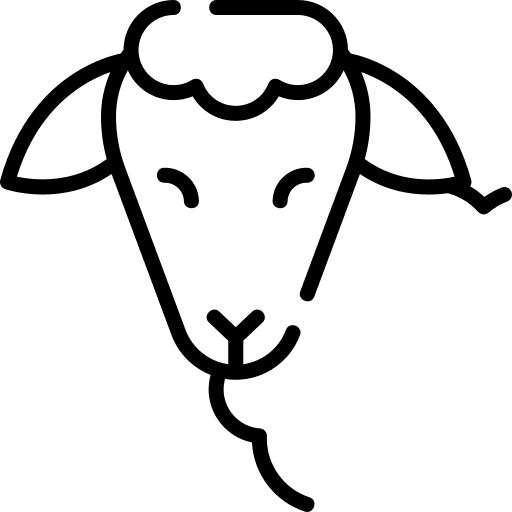
ਲੇਲੇ
ਲੇਲੇ ਦੁਖਦਾਈ ਵਿਗਾੜ ਨੂੰ ਸਹਿਣ ਕਰਦੇ ਹਨ ਅਤੇ ਜਨਮ ਤੋਂ ਬਿਲਕੁਲ ਦਿਨ ਬਾਅਦ ਉਨ੍ਹਾਂ ਦੀਆਂ ਮਾਵਾਂ ਤੋਂ ਬਖਸ਼ੇ - ਸਾਰੇ ਮੀਟ ਦੀ ਖ਼ਾਤਰ. ਉਨ੍ਹਾਂ ਦਾ ਦੁੱਖ ਬਹੁਤ ਜਲਦੀ ਸ਼ੁਰੂ ਹੋ ਜਾਂਦਾ ਹੈ ਅਤੇ ਜਲਦੀ ਹੀ ਬਹੁਤ ਜਲਦੀ ਖਤਮ ਹੁੰਦਾ ਹੈ.

ਖਰਗੋਸ਼
ਖਰਗੋਸ਼ ਬਿਨਾਂ ਕਾਨੂੰਨੀ ਤੌਰ 'ਤੇ ਕਤਲੇਆਮ ਨੂੰ ਸਹਿਣ ਕਰਦੇ ਹਨ - ਬਹੁਤਿਆਂ ਨੂੰ ਕੁੱਟਿਆ ਜਾਂਦਾ ਹੈ, ਗੁੰਮਰਾਹਕਿਆ ਜਾਂਦਾ ਹੈ, ਅਤੇ ਫਿਰ ਵੀ ਚੇਤੰਨ ਹੋਣ ਤੋਂ ਬਾਅਦ ਉਨ੍ਹਾਂ ਦੇ ਗਲੇ ਹੋ ਜਾਂਦੇ ਹਨ. ਉਨ੍ਹਾਂ ਦਾ ਚੁੱਪ ਪੀਣਾ ਅਕਸਰ ਅਣਸੁਖਾਦਾ ਜਾਂਦਾ ਹੈ.

ਟਰਕੀ
ਹਰ ਸਾਲ, ਲੱਖਾਂ ਟਰਕੀ ਬੇਰਹਿਮ ਮੌਤਾਂ ਦਾ ਸਾਹਮਣਾ ਕਰਦੇ ਹਨ, ਬਹੁਤ ਸਾਰੇ ਆਵਾਜਾਈ ਦੌਰਾਨ ਤਣਾਅ ਕਾਰਨ ਮਰ ਜਾਂਦੇ ਹਨ ਜਾਂ ਬੁੱਚੜਖਾਨਿਆਂ ਵਿੱਚ ਜ਼ਿੰਦਾ ਉਬਾਲ ਕੇ ਮਰ ਜਾਂਦੇ ਹਨ। ਆਪਣੀ ਬੁੱਧੀ ਅਤੇ ਮਜ਼ਬੂਤ ਪਰਿਵਾਰਕ ਬੰਧਨਾਂ ਦੇ ਬਾਵਜੂਦ, ਉਹ ਚੁੱਪਚਾਪ ਅਤੇ ਵੱਡੀ ਗਿਣਤੀ ਵਿੱਚ ਦੁੱਖ ਝੱਲਦੇ ਹਨ।
ਬੇਰਹਿਮੀ ਤੋਂ ਪਰੇ
ਮੀਟ ਦਾ ਉਦਯੋਗ ਗ੍ਰਹਿ ਅਤੇ ਸਾਡੀ ਸਿਹਤ ਦੋਵਾਂ ਨੂੰ ਨੁਕਸਾਨ ਪਹੁੰਚਾਉਂਦਾ ਹੈ.
ਮੀਟ ਦਾ ਵਾਤਾਵਰਣ ਪ੍ਰਭਾਵ
ਭੋਜਨ ਲਈ ਜਾਨਵਰਾਂ ਨੂੰ ਪਾਲਣ ਵਿੱਚ ਵੱਡੀ ਮਾਤਰਾ ਵਿੱਚ ਜ਼ਮੀਨ, ਪਾਣੀ, ਊਰਜਾ ਦੀ ਖਪਤ ਹੁੰਦੀ ਹੈ ਅਤੇ ਵਾਤਾਵਰਣ ਨੂੰ ਵੱਡਾ ਨੁਕਸਾਨ ਹੁੰਦਾ ਹੈ। ਸੰਯੁਕਤ ਰਾਸ਼ਟਰ ਦੇ FAO ਦਾ ਕਹਿਣਾ ਹੈ ਕਿ ਜਲਵਾਯੂ ਪਰਿਵਰਤਨ ਨਾਲ ਲੜਨ ਲਈ ਜਾਨਵਰਾਂ ਦੇ ਉਤਪਾਦਾਂ ਦੀ ਖਪਤ ਨੂੰ ਘਟਾਉਣਾ ਬਹੁਤ ਜ਼ਰੂਰੀ ਹੈ, ਕਿਉਂਕਿ ਪਸ਼ੂ ਪਾਲਣ ਵਿਸ਼ਵਵਿਆਪੀ ਗ੍ਰੀਨਹਾਊਸ ਗੈਸਾਂ ਦੇ ਨਿਕਾਸ ਦਾ ਲਗਭਗ 15% ਹਿੱਸਾ ਹੈ। ਫੈਕਟਰੀ ਫਾਰਮ ਅਮਰੀਕਾ ਵਿੱਚ 35,000 ਮੀਲ ਤੋਂ ਵੱਧ ਜਲ ਮਾਰਗਾਂ ਨੂੰ ਪ੍ਰਦੂਸ਼ਿਤ ਕਰਦੇ ਹੋਏ, ਫੀਡ, ਸਫਾਈ ਅਤੇ ਪੀਣ ਲਈ ਵਿਸ਼ਾਲ ਪਾਣੀ ਦੇ ਸਰੋਤਾਂ ਨੂੰ ਵੀ ਬਰਬਾਦ ਕਰਦੇ ਹਨ।
ਸਿਹਤ ਖਤਰੇ
ਜਾਨਵਰਾਂ ਦੇ ਉਤਪਾਦਾਂ ਨੂੰ ਖਾਣਾ ਗੰਭੀਰ ਸਿਹਤ ਦੇ ਮੁੱਦਿਆਂ ਦੇ ਜੋਖਮ ਨੂੰ ਵਧਾਉਂਦਾ ਹੈ. ਜੋ ਪ੍ਰੋਸੈਸਡ ਮੀਟ ਨੂੰ ਕਾਰਸਿਨੋਜਨ ਦੇ ਤੌਰ ਤੇ ਸ਼੍ਰੇਣੀਬੱਧ ਕਰਦਾ ਹੈ, ਕੋਲਨ ਅਤੇ ਗੁਦਾ ਦੇ ਕੈਂਸਰ ਦਾ ਜੋਖਮ 18% ਦੇ ਨਾਲ ਉਠਾਉਂਦਾ ਹੈ. ਜਾਨਵਰਾਂ ਦੇ ਉਤਪਾਦ ਦਿਲ ਦੀ ਬਿਮਾਰੀ, ਸਟਰੋਕ, ਡਾਇਬਟੀਜ਼, ਅਤੇ ਮੌਤ ਦੇ ਮੌਤ ਦੇ ਕਸਰ ਆਉਣ ਵਾਲੇ ਕਾਰਨਾਂ ਨਾਲ ਜੁੜੇ ਰੇਸ਼ੇ ਵਾਲੀਆਂ ਚਰਬੀ ਵਿੱਚ ਵਧੇਰੇ ਹਨ; ਇਕ ਅਧਿਐਨ ਪਾਇਆ ਕਿ ਉਹ ਮੀਟ-ਖਾਣ ਵਾਲੇ ਦੇ ਮੁਕਾਬਲੇ ਛੇ ਸਾਲਾਂ ਤੋਂ ਘੱਟ ਹੋਣ ਦੀ ਸੰਭਾਵਨਾ ਘੱਟ ਸੀ.
ਡੇਅਰੀ ਉਦਯੋਗ
ਡੇਅਰੀ ਦੇ ਹਨੇਰਾ ਰਾਜ਼
ਹਰ ਗਲਾਸ ਦੇ ਪੱਟੀ ਦੇ ਪਿੱਛੇ ਦੁੱਖਾਂ ਦਾ ਚੱਕਰ ਬਾਰ ਬਾਰ ਪ੍ਰਭਾਵਿਤ ਹੁੰਦੇ ਹਨ, ਸਿਰਫ ਆਪਣੇ ਵੱਛੇ ਸਿਰਫ ਆਪਣੇ ਵੱਛੇ ਨੂੰ ਦੂਰ ਕਰਨ ਲਈ ਉਨ੍ਹਾਂ ਦੇ ਦੁੱਧ ਲਈ ਕਟਾਈ ਕਰ ਸਕਦੇ ਹਨ.
ਟੁੱਟੇ ਪਰਿਵਾਰ
ਡੇਅਰੀ ਫਾਰਮਾਂ ਤੇ ਮਾਵਾਂ ਆਪਣੇ ਵੱਛੇ ਲਈ ਰੋਦੀਆਂ ਹਨ ਜਿਵੇਂ ਕਿ ਉਨ੍ਹਾਂ ਨੂੰ ਖੋਹ ਲਿਆ ਜਾਂਦਾ ਹੈ - ਇਸ ਲਈ ਉਨ੍ਹਾਂ ਲਈ ਦੁੱਧ ਦਾ ਮਤਲਬ ਹੈ ਸਾਡੇ ਲਈ ਉਨ੍ਹਾਂ ਲਈ ਦੁੱਧ ਦਾ ਮਤਲਬ ਹੈ.
ਇਕੱਲੇ ਸੀਮਤ
ਵੱਛੇ, ਉਨ੍ਹਾਂ ਦੀਆਂ ਮਾਵਾਂ ਤੋਂ ਚੀਰ ਦਿੱਤਾ, ਆਪਣੀ ਜਲਦੀ ਜ਼ਿੰਦਗੀ ਨੂੰ ਠੰਡੇ ਇਕੱਲਤਾ ਵਿੱਚ ਬਿਤਾਓ. ਉਨ੍ਹਾਂ ਦੀਆਂ ਮਾਵਾਂ ਚੀਕਿਆ ਸਟਾਲਾਂ ਵਿਚ ਰੱਖੀਆਂ ਜਾਂਦੀਆਂ ਹਨ, ਚੁੱਪ ਕਰਾਉਣ ਵਾਲੇ ਦੁੱਖਾਂ ਦਾ ਸਦਾ ਜ਼ਿਆਦਾਤਰ ਦੁੱਖਾਂ ਵਿਚ-ਕਠੋਰ ਹੋਣ ਲਈ ਸਾਡੇ ਲਈ ਕਦੇ ਵੀ ਮਤਲਬ ਨਹੀਂ.
ਦੁਖਦਾਈ ਵਿਗਾੜ
ਬ੍ਰਾਂਡਿੰਗ ਦੇ ਭਿਆਨਕ ਦਰਦ ਤੋਂ ਲੈ ਕੇ ਸਿੰਗ ਕੱਟਣ ਅਤੇ ਪੂਛ ਡੌਕਿੰਗ ਦੇ ਕੱਚੇ ਦਰਦ ਤੱਕ - ਇਹ ਹਿੰਸਕ ਪ੍ਰਕਿਰਿਆਵਾਂ ਬਿਨਾਂ ਅਨੱਸਥੀਸੀਆ ਦੇ ਕੀਤੀਆਂ ਜਾਂਦੀਆਂ ਹਨ, ਜਿਸ ਨਾਲ ਗਾਵਾਂ ਦਾਗ਼, ਡਰ ਅਤੇ ਟੁੱਟ ਜਾਣਾ ਛੱਡ ਦਿੱਤਾ ਜਾਂਦਾ ਹੈ।
ਬੇਰਹਿਮੀ ਨਾਲ ਮਾਰਿਆ ਗਿਆ
ਕਾਵਾਂ ਡੇਅਰੀ ਦੇ ਚਿਹਰੇ ਲਈ ਨੱਕਰੀ ਦਾ ਅੰਤ ਹੈ, ਇੱਕ ਵਾਰ ਬਹੁਤ ਜਵਾਨ ਕਤਲ ਕਰ ਦਿੱਤਾ ਜਦੋਂ ਉਹ ਹੁਣ ਦੁੱਧ ਪੈਦਾ ਕਰਦੇ ਹਨ. ਬਹੁਤ ਸਾਰੇ ਜ਼ਬਰਦਸਤ ਯਾਤਰਾ ਨੂੰ ਸਹਿਣ ਕਰਦੇ ਹਨ ਅਤੇ ਕਤਲੇਆਮ ਦੌਰਾਨ ਚੇਤੰਨ ਰਹਿੰਦੇ ਹਨ, ਉਨ੍ਹਾਂ ਦੇ ਦੁੱਖਾਂ ਨੇ ਉਦਯੋਗਾਂ ਦੀਆਂ ਕੰਧਾਂ ਦੇ ਪਿੱਛੇ ਛੁਪਿਆ ਹੋਇਆ ਸੀ.
ਬੇਰਹਿਮੀ ਤੋਂ ਪਰੇ
ਜ਼ਾਲਮ ਡੇਅਰੀ ਵਾਤਾਵਰਣ ਅਤੇ ਸਾਡੀ ਸਿਹਤ ਨੂੰ ਨੁਕਸਾਨ ਪਹੁੰਚਾਉਂਦੀ ਹੈ.
ਡੇਅਰੀ ਦੇ ਵਾਤਾਵਰਣਕ ਕੀਮਤ
ਡੇਅਰੀ ਫਾਰਮਿੰਗ ਵੱਡੀ ਮਾਤਰਾ ਵਿੱਚ ਮੀਥੇਨ, ਨਾਈਟਰਸ ਆਕਸਾਈਡ ਅਤੇ ਕਾਰਬਨ ਡਾਈਆਕਸਾਈਡ ਛੱਡਦੀ ਹੈ - ਸ਼ਕਤੀਸ਼ਾਲੀ ਗ੍ਰੀਨਹਾਊਸ ਗੈਸਾਂ ਜੋ ਵਾਤਾਵਰਣ ਨੂੰ ਨੁਕਸਾਨ ਪਹੁੰਚਾਉਂਦੀਆਂ ਹਨ। ਇਹ ਕੁਦਰਤੀ ਨਿਵਾਸ ਸਥਾਨਾਂ ਨੂੰ ਖੇਤੀ ਵਾਲੀ ਜ਼ਮੀਨ ਵਿੱਚ ਬਦਲ ਕੇ ਜੰਗਲਾਂ ਦੀ ਕਟਾਈ ਨੂੰ ਵੀ ਵਧਾਉਂਦੀ ਹੈ ਅਤੇ ਗਲਤ ਖਾਦ ਅਤੇ ਖਾਦ ਪ੍ਰਬੰਧਨ ਦੁਆਰਾ ਸਥਾਨਕ ਪਾਣੀ ਦੇ ਸਰੋਤਾਂ ਨੂੰ ਪ੍ਰਦੂਸ਼ਿਤ ਕਰਦੀ ਹੈ।
ਸਿਹਤ ਖਤਰੇ
ਦੁੱਧ ਦੇ ਕਾਰਨ ਦੁੱਧ ਦੇ ਉੱਚ ਇੰਸੁਲਿਨ ਵਰਗੇ ਕਾਰਕ ਦੇ ਪੱਧਰ ਦੇ ਕਾਰਨ ਛਾਤੀ ਅਤੇ ਪ੍ਰੋਸਟੇਟ ਦੇ ਕੈਂਸਰਾਂ ਸਮੇਤ, ਛਾਤੀ ਅਤੇ ਪ੍ਰੋਸਟੇਟ ਦੇ ਕੈਂਸਰਾਂ ਸਮੇਤ ਗੰਭੀਰ ਸਿਹਤ ਦੇ ਮੁੱਦਿਆਂ ਦੇ ਉੱਚਿਤ ਖਤਰੇ ਨਾਲ ਜੁੜੇ ਹੋਏ ਹਨ. ਜਦੋਂ ਕਿ ਕੈਲਸ਼ੀਅਮ ਸਖ਼ਤ ਹੱਡੀਆਂ ਲਈ ਜ਼ਰੂਰੀ ਹੈ, ਡੇਅਰੀ ਸਿਰਫ ਜਾਂ ਵਧੀਆ ਸਰੋਤ ਨਹੀਂ ਹੈ; ਪੱਤੇਦਾਰ ਸਾਗ ਅਤੇ ਫੋਰਟਰਿਡ ਪੌਦੇ-ਅਧਾਰਤ ਡ੍ਰਿੰਕ ਜ਼ੁਲਮ ਰਹਿਤ, ਸਿਹਤਮੰਦ ਵਿਕਲਪਾਂ ਦੀ ਪੇਸ਼ਕਸ਼ ਕਰਦੇ ਹਨ.
ਅੰਡੇ ਦਾ ਉਦਯੋਗ
ਪਿੰਜਰੇ ਮੁਰਗੀ ਦੀ ਜ਼ਿੰਦਗੀ
ਮੁਰਗੀ ਸਮਾਜਿਕ ਜਾਨਵਰ ਹਨ ਜੋ ਆਪਣੇ ਪਰਿਵਾਰਾਂ ਦੀ ਭਾਲ ਅਤੇ ਦੇਖਭਾਲ ਕਰਨ ਦਾ ਅਨੰਦ ਲੈਂਦੇ ਹਨ, ਪਰ ਉਹ ਦੋ ਸਾਲ ਛੋਟੇ ਪਿੰਜਰੇ ਵਿਚ ਡੁੱਬਦੇ ਹਨ, ਆਪਣੇ ਖੰਭਾਂ ਨੂੰ ਫੈਲਾਉਣ ਜਾਂ ਕੁਦਰਤੀ ਵਿਵਹਾਰ ਕਰਨ ਵਿਚ ਅਸਮਰੱਥ ਹਨ.
34 ਘੰਟੇ ਦੁੱਖ: ਇੱਕ ਅੰਡੇ ਦੀ ਅਸਲ ਕੀਮਤ
ਨਰ ਚਿਕ ਕੁੱਕ
ਪੁਰਸ਼ ਚੂਚੇ, ਅੰਡੇ ਦੇਣ ਜਾਂ ਮੀਟ ਦੇ ਮੁਰਗੀ ਵਰਗੇ ਵਧਣ ਦੇ ਅਯੋਗ, ਅੰਡੇ ਦੇ ਉਦਯੋਗਾਂ ਦੁਆਰਾ ਵਿਅਰਥ ਮੰਨੇ ਜਾਂਦੇ ਹਨ. ਹੈਚਿੰਗ ਤੋਂ ਤੁਰੰਤ ਬਾਅਦ, ਉਹ ma ਰਤਾਂ ਅਤੇ ਬੇਰਹਿਮੀ ਨਾਲ ਮਾਰੇ ਗਏ ਤੋਂ ਵੱਖ ਹੋ ਜਾਂਦੇ ਹਨ- ਜਾਂ ਤਾਂ ਦਮ ਘੁੱਟ ਕੇ ਉਦਯੋਗਿਕ ਮਸ਼ੀਨਾਂ ਵਿੱਚ ਜਿੰਦਾ ਜਾਂ ਜ਼ਿੱਦ ਹੋ ਜਾਂਦੇ ਹਨ.
ਤੀਬਰ ਸੰਕਟ
ਅਮਰੀਕਾ ਵਿਚ, ਲਗਭਗ 75% ਕਾਰਾਂ ਨੂੰ ਛੋਟੇ ਤਾਰ ਦੇ ਪਿੰਜਰੇ ਵਿਚ ਚਲੇ ਗਏ ਹਨ, ਹਰ ਇਕ ਪ੍ਰਿੰਟਰ ਪੇਪਰ ਦੀ ਸ਼ੀਟ ਨਾਲੋਂ ਘੱਟ ਜਗ੍ਹਾ ਦੇ ਨਾਲ. ਉਨ੍ਹਾਂ ਦੇ ਪੈਰਾਂ ਨੂੰ ਜ਼ਖਮੀ ਕਰਨ ਵਾਲੀਆਂ ਕਠੋਰ ਤਾਰਾਂ 'ਤੇ ਖਲੋਣ ਲਈ ਮਜਬੂਰ ਹੋਣ ਲਈ, ਬਹੁਤ ਸਾਰੇ ਕਲੇਸ਼ ਇਨ੍ਹਾਂ ਪਿੰਜਰਾਂ ਵਿਚ ਭੁਗਤਦੇ ਹਨ ਅਤੇ ਮਰਦੇ ਹਨ.
ਬੇਰਹਿਮ ਵਿਗਾੜ
ਅੰਡੇ ਉਦਯੋਗ ਵਿੱਚ ਮੁਰਗੀਆਂ ਬਹੁਤ ਜ਼ਿਆਦਾ ਕੈਦ ਕਾਰਨ ਗੰਭੀਰ ਤਣਾਅ ਦਾ ਸਾਹਮਣਾ ਕਰਦੀਆਂ ਹਨ, ਜਿਸ ਕਾਰਨ ਸਵੈ-ਵਿਗਾੜ ਅਤੇ ਨਰਭਾਈ ਵਰਗੇ ਨੁਕਸਾਨਦੇਹ ਵਿਵਹਾਰ ਹੁੰਦੇ ਹਨ। ਨਤੀਜੇ ਵਜੋਂ, ਕਾਮੇ ਦਰਦ ਨਿਵਾਰਕ ਦਵਾਈਆਂ ਤੋਂ ਬਿਨਾਂ ਆਪਣੀਆਂ ਕੁਝ ਸੰਵੇਦਨਸ਼ੀਲ ਚੁੰਝਾਂ ਨੂੰ ਕੱਟ ਦਿੰਦੇ ਹਨ।
ਬੇਰਹਿਮੀ ਤੋਂ ਪਰੇ
ਅੰਡੇ ਦਾ ਉਦਯੋਗ ਸਾਡੀ ਸਿਹਤ ਅਤੇ ਵਾਤਾਵਰਣ ਦੋਵਾਂ ਨੂੰ ਨੁਕਸਾਨ ਪਹੁੰਚਾਉਂਦਾ ਹੈ.
ਅੰਡੇ ਅਤੇ ਵਾਤਾਵਰਣ
ਅੰਡਿਆਂ ਦਾ ਉਤਪਾਦਨ ਵਾਤਾਵਰਣ ਨੂੰ ਮਹੱਤਵਪੂਰਣ ਰੂਪ ਵਿੱਚ ਨੁਕਸਾਨ ਕਰਦਾ ਹੈ. ਹਰ ਅੰਡਾ ਖਪਤ ਹੋਈ ਅੰਮੋਨੀਆ ਅਤੇ ਕਾਰਬਨ ਡਾਈਆਕਸਾਈਡ ਸਮੇਤ ਗ੍ਰੀਨਹਾਉਸ ਗੈਸਾਂ ਪੈਦਾ ਕਰਦਾ ਹੈ. ਇਸ ਤੋਂ ਇਲਾਵਾ, ਅੰਡੇ ਦੇ ਖੇਤ ਵਿੱਚ ਵਰਤੇ ਗਏ ਕੀਟਨਾਸ਼ਕਾਂ ਦੀ ਵਰਤੋਂ ਸਥਾਨਕ ਜਲਮਾਰਗਾਂ ਅਤੇ ਹਵਾ ਵਿੱਚ ਵਰਤੇ ਜਾਂਦੇ ਹਨ, ਵਾਤਾਵਰਣਕ ਨੁਕਸਾਨ ਵਿੱਚ ਯੋਗਦਾਨ ਪਾਉਂਦੇ ਹਨ.
ਸਿਹਤ ਖਤਰੇ
ਆਂਡੇ ਹਾਨੀਕਾਰਕ ਸਾਲਮੋਨੇਲਾ ਬੈਕਟੀਰੀਆ ਲੈ ਸਕਦੇ ਹਨ, ਭਾਵੇਂ ਉਹ ਆਮ ਦਿਖਾਈ ਦਿੰਦੇ ਹੋਣ, ਜਿਸ ਨਾਲ ਦਸਤ, ਬੁਖਾਰ, ਪੇਟ ਦਰਦ, ਸਿਰ ਦਰਦ, ਮਤਲੀ ਅਤੇ ਉਲਟੀਆਂ ਵਰਗੇ ਬਿਮਾਰੀਆਂ ਦੇ ਲੱਛਣ ਪੈਦਾ ਹੁੰਦੇ ਹਨ। ਫੈਕਟਰੀ-ਫਾਰਮ ਕੀਤੇ ਆਂਡੇ ਅਕਸਰ ਮਾੜੀਆਂ ਸਥਿਤੀਆਂ ਵਿੱਚ ਰੱਖੀਆਂ ਗਈਆਂ ਮੁਰਗੀਆਂ ਤੋਂ ਆਉਂਦੇ ਹਨ ਅਤੇ ਉਹਨਾਂ ਵਿੱਚ ਐਂਟੀਬਾਇਓਟਿਕਸ ਅਤੇ ਹਾਰਮੋਨ ਹੋ ਸਕਦੇ ਹਨ ਜੋ ਸਿਹਤ ਲਈ ਜੋਖਮ ਪੈਦਾ ਕਰਦੇ ਹਨ। ਇਸ ਤੋਂ ਇਲਾਵਾ, ਆਂਡੇ ਵਿੱਚ ਉੱਚ ਕੋਲੇਸਟ੍ਰੋਲ ਸਮੱਗਰੀ ਕੁਝ ਵਿਅਕਤੀਆਂ ਵਿੱਚ ਦਿਲ ਅਤੇ ਨਾੜੀਆਂ ਦੀਆਂ ਸਮੱਸਿਆਵਾਂ ਵਿੱਚ ਯੋਗਦਾਨ ਪਾ ਸਕਦੀ ਹੈ।
ਫਿਸ਼ਿੰਗ ਉਦਯੋਗ
ਮਾਰੂ ਮੱਛੀ ਉਦਯੋਗ
ਮੱਛੀ ਦਰਦ ਮਹਿਸੂਸ ਕਰਦੀ ਹੈ ਅਤੇ ਸੁਰੱਖਿਆ ਦੇ ਹੱਕਦਾਰ ਹੈ, ਪਰ ਖੇਤੀ ਜਾਂ ਮੱਛੀ ਫੜਨ ਵਿਚ ਕੋਈ ਕਾਨੂੰਨੀ ਅਧਿਕਾਰ ਨਹੀਂ ਹਨ. ਉਨ੍ਹਾਂ ਦੇ ਸਮਾਜਕ ਸੁਭਾਅ ਦੇ ਬਾਵਜੂਦ ਅਤੇ ਦਰਦ ਮਹਿਸੂਸ ਕਰਨ ਦੀ ਯੋਗਤਾ ਦੇ ਬਾਵਜੂਦ, ਉਨ੍ਹਾਂ ਨੂੰ ਸਿਰਫ ਵਸਤੂਆਂ ਵਜੋਂ ਮੰਨਿਆ ਜਾਂਦਾ ਹੈ.
ਫੈਕਟਰੀ ਮੱਛੀ ਫਾਰਮਾਂ
ਅੱਜ ਬਹੁਤ ਸਾਰੀਆਂ ਮੱਛੀਆਂ ਖਪਤ ਹੋਈ ਭੀੜ ਵਾਲੇ ਅੰਦਰੂਨੀ ਜਾਂ ਸਮੁੰਦਰ-ਅਧਾਰਤ ਐਕੁਆਰਫੀਆ ਵਿੱਚ ਪਾਲੀਆਂ ਜਾਂਦੀਆਂ ਹਨ, ਉਨ੍ਹਾਂ ਦੀ ਪੂਰੀ ਜ਼ਿੰਦਗੀ ਅਮੋਨੀਆ ਅਤੇ ਨਾਈਟ੍ਰੇਟਸ ਦੇ ਉੱਚ ਪੱਧਰੀ ਰੱਖਦੀਆਂ ਹਨ. ਇਹ ਕਠੋਰ ਹਾਲਾਤ ਅਕਸਰ ਪਰਤਰੀਆਂ ਦੀ ਲਾਗ ਦਾ ਪਾਲਣ ਕਰਦੇ ਹਨ ਜੋ ਉਨ੍ਹਾਂ ਦੇ ਗਿੱਲਾਂ, ਅੰਗਾਂ ਅਤੇ ਖੂਨ ਵਿੱਚ ਹਮਲਾ ਕਰਦੇ ਹਨ, ਅਤੇ ਨਾਲ ਹੀ ਜਰਾਸੀਮੀ ਲਾਗਾਂ ਤੇ ਹਮਲਾ ਹੁੰਦਾ ਹੈ.
ਉਦਯੋਗਿਕ ਫਿਸ਼ਿੰਗ
ਵਪਾਰਕ ਫਿਸ਼ਿੰਗ ਬਹੁਤ ਜ਼ਿਆਦਾ ਜਾਨਵਰ ਦੁਖੀ ਹੁੰਦੀ ਹੈ, ਦੁਨੀਆ ਭਰ ਵਿੱਚ ਲਗਭਗ ਟ੍ਰਿਲੀਅਨ ਮੱਛੀਆਂ ਨੂੰ ਕਤਲ ਕਰ ਰਹੇ ਹਨ. ਵੱਡੇ ਸਮੁੰਦਰੀ ਜਹਾਜ਼ਾਂ ਦੀ ਵਰਤੋਂ ਸੈਂਕੜੇ ਹਜ਼ਾਰਾਂ ਠਹਿਰਾਂ ਵਾਲੇ ਹੁੱਕਾਂ-ਅਤੇ ਗਿੱਲ ਜਾਲਾਂ ਤੋਂ 50 ਮੀਲ ਦੀ ਵਰਤੋਂ ਕਰਦੇ ਹਨ, ਜੋ ਕਿ 300 ਫੁੱਟ ਸੱਤ ਮੀਲ ਤੋਂ ਵੱਧ ਸਕਦੇ ਹਨ. ਮੱਛੀ ਅੰਨ੍ਹੇਵਾਹ ਇਨ੍ਹਾਂ ਜਾਲਾਂ ਵਿੱਚ ਤੈਰਦੀ ਹੈ, ਅਕਸਰ ਮੌਤ ਨੂੰ ਦਬਦਬਾ ਜਾਂ ਖੂਨ ਵਗਣਾ.
ਬੇਰਹਿਮ ਕਤਲੇਆਮ
ਕਾਨੂੰਨੀ ਸੁਰੱਖਿਆ ਤੋਂ ਬਿਨਾਂ, ਮੱਛੀ ਸਾਡੇ ਹੱਤਿਆ ਦੇ ਕਤਲੇਆਮ ਵਿੱਚ ਭਿਆਨਕ ਮੌਤਾਂ ਭੁਗਤਦੀਆਂ ਹਨ. ਪਾਣੀ ਤੋਂ ਖੋਹਿਆ ਗਿਆ, ਉਹ ਬੇਵੱਸ ਨਾਲ ਹੱਤਿਆ ਕਰਦੇ ਹਨ ਕਿਉਂਕਿ ਉਨ੍ਹਾਂ ਦੇ ਗਿੱਲ collapse ਹਿ ਜਾਂਦੇ ਹਨ, ਹੌਲੀ ਹੌਲੀ ਦੁਖ ਵਿੱਚ ਘੁੰਮਦੇ ਹਨ. ਵੱਡੀ ਮੱਛੀ-ਟੂਨਾ, ਤਲਵਾਰ ਤੋਂ ਬੇਰਹਿਮੀ ਨਾਲ ਕਿਹਾ ਜਾਂਦਾ ਹੈ, ਅਕਸਰ ਜ਼ਖਮੀ ਹੁੰਦਾ ਹੈ ਪਰ ਅਜੇ ਵੀ ਚੇਤੰਨ, ਮੌਤ ਤੋਂ ਪਹਿਲਾਂ ਵਾਰ ਵਾਰ ਹੜਤਾਲਾਂ ਨੂੰ ਸਹਿਣ ਲਈ ਮਜਬੂਰ ਕੀਤਾ. ਇਹ ਨਿਰੰਤਰ ਜ਼ੁਲਮ ਸਤਹ ਦੇ ਹੇਠਾਂ ਲੁਕਿਆ ਹੋਇਆ ਹੈ.
ਬੇਰਹਿਮੀ ਤੋਂ ਪਰੇ
ਫਿਸ਼ਿੰਗ ਉਦਯੋਗ ਸਾਡੇ ਗ੍ਰਹਿ ਨੂੰ ਤਬਾਹ ਕਰਦਾ ਹੈ ਅਤੇ ਆਪਣੀ ਸਿਹਤ ਨੂੰ ਨੁਕਸਾਨ ਪਹੁੰਚਦਾ ਹੈ.
ਮੱਛੀ ਫੜਨ ਅਤੇ ਵਾਤਾਵਰਣ
ਉਦਯੋਗਿਕ ਫਿਸ਼ਿੰਗ ਅਤੇ ਮੱਛੀ ਪਾਲਣ ਦੋਵੇਂ ਵਾਤਾਵਰਣ ਨੂੰ ਨੁਕਸਾਨ ਪਹੁੰਚਾਉਂਦੇ ਹਨ. ਫੈਕਟਰੀ ਫਿਸ਼ ਫਾਰਮਾਂ ਪਾਣੀ ਨੂੰ ਜ਼ਹਿਰੀਲੇ ਪੱਧਰਾਂ, ਨਾਈਟ੍ਰੇਟਸ ਅਤੇ ਪਰਜੀਵੀਾਂ, ਜਿਸ ਨਾਲ ਵਿਆਪਕ ਨੁਕਸਾਨ ਪਹੁੰਚਾਉਂਦਾ ਹੈ. ਵੱਡੇ ਵਪਾਰਕ ਫਿਸ਼ਿੰਗ ਸਮੁੰਦਰੀ ਜਹਾਜ਼ਾਂ ਨੂੰ ਸਾਗਰ ਦੇ ਤਲ ਨੂੰ ਖਤਮ ਕਰ ਦਿੰਦੇ ਹੋਏ, ਰਿਹਾਇਸ਼ਾਂ ਨੂੰ ਨਸ਼ਟ ਕਰ ਦਿੰਦੇ ਹਨ ਅਤੇ ਉਨ੍ਹਾਂ ਦੇ ਕੈਚ ਦੇ 40% ਨੂੰ ਬਾਈਕੈਚ ਵਜੋਂ ਛੱਡ ਦਿੰਦੇ ਹਨ, ਵਾਤਾਵਰਣ ਦੇ ਪ੍ਰਭਾਵ ਨੂੰ ਵਿਗੜਦੇ ਹਨ.
ਸਿਹਤ ਖਤਰੇ
ਮੱਛੀ ਅਤੇ ਸਮੁੰਦਰੀ ਭੋਜਨ ਖਾਣ ਨਾਲ ਸਿਹਤ ਦੇ ਜੋਖਮ. ਬਹੁਤ ਸਾਰੀਆਂ ਸਪੀਸੀਜ਼ ਜਿਵੇਂ ਟੁਨਾ, ਸਵੋਰਡਫਿਸ਼, ਸ਼ਾਰਕ ਅਤੇ ਮੈਕਰੇਲ ਵਿੱਚ ਉੱਚ ਪਾਰਾ ਦੇ ਪੱਧਰ ਹਨ, ਜੋ ਗਰੰਸਾਂ ਅਤੇ ਛੋਟੇ ਬੱਚਿਆਂ ਦੇ ਵਿਕਾਸ ਦੇ ਘਬਰਾਉਣ ਵਾਲੇ ਲੋਕਾਂ ਨੂੰ ਨੁਕਸਾਨ ਪਹੁੰਚਾ ਸਕਦੇ ਹਨ. ਮੱਛੀ ਨੂੰ ਜ਼ਹਿਰੀਲੇ ਰਸਾਇਣਾਂ ਜਿਵੇਂ ਕਿ ਡਾਇਓਕਸਿਨ ਅਤੇ ਪੀਸੀਬੀਜ਼ ਵਰਗੇ ਜ਼ਹਿਰੀਲੇ ਰਸਾਇਣਾਂ ਨਾਲ ਦੂਸ਼ਿਤ ਹੋ ਸਕਦਾ ਹੈ, ਕੈਂਸਰ ਅਤੇ ਪ੍ਰਜਨਨ ਸਮੱਸਿਆਵਾਂ ਨਾਲ ਜੁੜਿਆ ਹੋਇਆ ਹੈ. ਇਸ ਤੋਂ ਇਲਾਵਾ, ਅਧਿਐਨ ਦਰਸਾਉਂਦੇ ਹਨ ਕਿ ਮੱਛੀ ਦੇ ਗਾਹਕ ਸਾਲਾਨਾ ਹਜ਼ਾਰਾਂ ਛੋਟੇ ਪਲਾਸਟਿਕ ਦੇ ਕਣਾਂ ਨੂੰ ਲਗਾ ਸਕਦੇ ਹਨ.
200 ਜਾਨਵਰ.
ਇਸ ਤਰ੍ਹਾਂ ਦੀਆਂ ਜਾਨਾਂ ਇਕ ਵਿਅਕਤੀ ਸ਼ਾਕਾਹਾਰੀ ਨਾਲ ਭਰ ਦੇ ਸਕਦੀਆਂ ਹਨ.
ਇਸ ਦੇ ਨਾਲ ਹੀ, ਜੇ ਪਸ਼ੂਆਂ ਨੂੰ ਖਾਣ ਲਈ ਵਰਤਿਆ ਅਨਾਜ ਲੋਕਾਂ ਨੂੰ ਖਾਣ ਲਈ ਵਰਤਿਆ ਜਾਂਦਾ ਸੀ, ਤਾਂ ਇਹ ਹਰ ਸਾਲ 3.5 ਬਿਲੀ ਲੋਕਾਂ ਲਈ ਭੋਜਨ ਦੇ ਸਕਦਾ ਹੈ.
ਗਲੋਬਲ ਭੁੱਖ ਨੂੰ ਸੰਬੋਧਿਤ ਕਰਨ ਵਿੱਚ ਇੱਕ ਨਾਜ਼ੁਕ ਕਦਮ.



ਬੇਰਹਿਮ ਕੈਦ
ਫੈਕਟਰੀ ਫਾਰਮਿੰਗ ਦੀ ਅਸਲੀਅਤ
ਲਗਭਗ 99% ਪਾਲਤੂ ਜਾਨਵਰ ਆਪਣੀ ਪੂਰੀ ਜ਼ਿੰਦਗੀ ਵੱਡੇ ਉਦਯੋਗਿਕ ਫੈਕਟਰੀ ਫਾਰਮਾਂ ਵਿੱਚ ਬਿਤਾਉਂਦੇ ਹਨ। ਇਹਨਾਂ ਸਹੂਲਤਾਂ ਵਿੱਚ, ਹਜ਼ਾਰਾਂ ਨੂੰ ਤਾਰਾਂ ਦੇ ਪਿੰਜਰਿਆਂ, ਧਾਤ ਦੇ ਬਕਸੇ, ਜਾਂ ਗੰਦੇ, ਖਿੜਕੀਆਂ ਰਹਿਤ ਸ਼ੈੱਡਾਂ ਦੇ ਅੰਦਰ ਹੋਰ ਪਾਬੰਦੀਸ਼ੁਦਾ ਘੇਰਿਆਂ ਵਿੱਚ ਪੈਕ ਕੀਤਾ ਜਾਂਦਾ ਹੈ। ਉਹਨਾਂ ਨੂੰ ਸਭ ਤੋਂ ਬੁਨਿਆਦੀ ਕੁਦਰਤੀ ਵਿਵਹਾਰਾਂ ਤੋਂ ਵਾਂਝਾ ਰੱਖਿਆ ਜਾਂਦਾ ਹੈ - ਆਪਣੇ ਬੱਚਿਆਂ ਨੂੰ ਪਾਲਣ, ਮਿੱਟੀ ਵਿੱਚ ਚਾਰਾ ਲੱਭਣ, ਆਲ੍ਹਣੇ ਬਣਾਉਣ, ਜਾਂ ਇੱਥੋਂ ਤੱਕ ਕਿ ਸੂਰਜ ਦੀ ਰੌਸ਼ਨੀ ਅਤੇ ਤਾਜ਼ੀ ਹਵਾ ਮਹਿਸੂਸ ਕਰਨ - ਜਦੋਂ ਤੱਕ ਉਹਨਾਂ ਨੂੰ ਬੁੱਚੜਖਾਨਿਆਂ ਵਿੱਚ ਨਹੀਂ ਲਿਜਾਇਆ ਜਾਂਦਾ।
ਫੈਕਟਰੀ ਫਾਰਮਿੰਗ ਉਦਯੋਗ ਜਾਨਵਰਾਂ ਦੇ ਖਰਚੇ 'ਤੇ ਵੱਧ ਤੋਂ ਵੱਧ ਮੁਨਾਫ਼ਾ ਕਮਾਉਣ 'ਤੇ ਬਣਿਆ ਹੈ। ਬੇਰਹਿਮੀ ਦੇ ਬਾਵਜੂਦ, ਇਹ ਪ੍ਰਣਾਲੀ ਜਾਰੀ ਹੈ ਕਿਉਂਕਿ ਇਸਨੂੰ ਵਧੇਰੇ ਲਾਭਦਾਇਕ ਮੰਨਿਆ ਜਾਂਦਾ ਹੈ, ਜੋ ਲੋਕਾਂ ਦੀਆਂ ਨਜ਼ਰਾਂ ਤੋਂ ਲੁਕੇ ਹੋਏ ਜਾਨਵਰਾਂ ਦੇ ਦੁੱਖਾਂ ਦੇ ਇੱਕ ਵਿਨਾਸ਼ਕਾਰੀ ਰਸਤੇ ਨੂੰ ਪਿੱਛੇ ਛੱਡਦਾ ਹੈ।
ਫੈਕਟਰੀ ਫਾਰਮਾਂ 'ਤੇ ਜਾਨਵਰ ਲਗਾਤਾਰ ਡਰ ਅਤੇ ਤਸੀਹੇ ਝੱਲਦੇ ਹਨ:
ਸਪੇਸ ਪਾਬੰਦੀਆਂ
ਜਾਨਵਰ ਅਕਸਰ ਇੰਨੇ ਤੰਗ ਹੁੰਦੇ ਹਨ ਕਿ ਉਹ ਮੁੜ ਨਹੀਂ ਸਕਦੇ ਜਾਂ ਲੇਟ ਨਹੀਂ ਸਕਦੇ। ਮੁਰਗੀਆਂ ਛੋਟੇ ਪਿੰਜਰਿਆਂ ਵਿੱਚ ਰਹਿੰਦੀਆਂ ਹਨ, ਮੁਰਗੀਆਂ ਅਤੇ ਸੂਰ ਭੀੜ-ਭੜੱਕੇ ਵਾਲੇ ਸ਼ੈੱਡਾਂ ਵਿੱਚ, ਅਤੇ ਗਾਵਾਂ ਗੰਦੇ ਚਾਰੇ ਵਾਲੇ ਸਥਾਨਾਂ ਵਿੱਚ।
ਐਂਟੀਬਾਇਓਟਿਕ ਵਰਤੋਂ
ਐਂਟੀਬਾਇਓਟਿਕਸ ਵਿਕਾਸ ਨੂੰ ਤੇਜ਼ ਕਰਦੇ ਹਨ ਅਤੇ ਜਾਨਵਰਾਂ ਨੂੰ ਗੰਦੀਆਂ ਸਥਿਤੀਆਂ ਵਿੱਚ ਜ਼ਿੰਦਾ ਰੱਖਦੇ ਹਨ, ਜੋ ਮਨੁੱਖਾਂ ਲਈ ਨੁਕਸਾਨਦੇਹ ਐਂਟੀਬਾਇਓਟਿਕ-ਰੋਧਕ ਬੈਕਟੀਰੀਆ ਨੂੰ ਵਧਾ ਸਕਦੇ ਹਨ।
ਜੈਨੇਟਿਕ ਹੇਰਾਫੇਰੀ
ਬਹੁਤ ਸਾਰੇ ਜਾਨਵਰਾਂ ਨੂੰ ਵੱਡੇ ਹੋਣ ਜਾਂ ਜ਼ਿਆਦਾ ਦੁੱਧ ਜਾਂ ਅੰਡੇ ਪੈਦਾ ਕਰਨ ਲਈ ਬਦਲਿਆ ਜਾਂਦਾ ਹੈ। ਕੁਝ ਮੁਰਗੀਆਂ ਆਪਣੀਆਂ ਲੱਤਾਂ ਲਈ ਬਹੁਤ ਭਾਰੀ ਹੋ ਜਾਂਦੀਆਂ ਹਨ, ਜਿਸ ਕਾਰਨ ਉਹ ਭੁੱਖੇ ਮਰ ਜਾਂਦੇ ਹਨ ਜਾਂ ਭੋਜਨ ਅਤੇ ਪਾਣੀ ਤੱਕ ਪਹੁੰਚਣ ਦੇ ਅਯੋਗ ਹੋ ਜਾਂਦੇ ਹਨ।
ਕੀ ਫਰਕ ਲਿਆਉਣ ਲਈ ਤਿਆਰ ਹੋ?
ਤੁਸੀਂ ਇੱਥੇ ਇਸ ਲਈ ਹੋ ਕਿਉਂਕਿ ਤੁਹਾਨੂੰ ਪਰਵਾਹ ਹੈ — ਲੋਕਾਂ, ਜਾਨਵਰਾਂ ਅਤੇ ਗ੍ਰਹਿ ਦੀ।

ਪੌਦੇ-ਅਧਾਰਤ ਜੀਵਨ ਕਿਉਂ ਚੁਣੋ?
ਪੌਦਿਆਂ-ਅਧਾਰਿਤ ਹੋਣ ਦੇ ਪਿੱਛੇ ਸ਼ਕਤੀਸ਼ਾਲੀ ਕਾਰਨਾਂ ਦੀ ਪੜਚੋਲ ਕਰੋ—ਬਿਹਤਰ ਸਿਹਤ ਤੋਂ ਲੈ ਕੇ ਇੱਕ ਦਿਆਲੂ ਗ੍ਰਹਿ ਤੱਕ। ਪਤਾ ਲਗਾਓ ਕਿ ਤੁਹਾਡੀਆਂ ਭੋਜਨ ਚੋਣਾਂ ਸੱਚਮੁੱਚ ਕਿਵੇਂ ਮਾਇਨੇ ਰੱਖਦੀਆਂ ਹਨ।

ਪੌਦੇ-ਅਧਾਰਤ ਜੀਵਨ ਸ਼ੈਲੀ ਸ਼ੁਰੂ ਕਰਨ ਲਈ ਤੁਹਾਡੀ ਗਾਈਡ
ਆਪਣੇ ਪੌਦੇ-ਅਧਾਰਿਤ ਸਫ਼ਰ ਨੂੰ ਆਤਮਵਿਸ਼ਵਾਸ ਅਤੇ ਆਸਾਨੀ ਨਾਲ ਸ਼ੁਰੂ ਕਰਨ ਲਈ ਸਧਾਰਨ ਕਦਮਾਂ, ਸਮਾਰਟ ਸੁਝਾਵਾਂ ਅਤੇ ਮਦਦਗਾਰ ਸਰੋਤਾਂ ਦੀ ਖੋਜ ਕਰੋ।
ਹਰੇ ਭਵਿੱਖ ਲਈ ਟਿਕਾਊ ਜੀਵਨ।
ਪੌਦੇ ਚੁਣੋ, ਗ੍ਰਹਿ ਦੀ ਰੱਖਿਆ ਕਰੋ, ਅਤੇ ਇੱਕ ਦਿਆਲੂ ਭਵਿੱਖ ਨੂੰ ਅਪਣਾਓ - ਇੱਕ ਅਜਿਹਾ ਜੀਵਨ ਢੰਗ ਜੋ ਤੁਹਾਡੀ ਸਿਹਤ ਦਾ ਪਾਲਣ ਪੋਸ਼ਣ ਕਰਦਾ ਹੈ, ਸਾਰੇ ਜੀਵਨ ਦਾ ਸਤਿਕਾਰ ਕਰਦਾ ਹੈ, ਅਤੇ ਆਉਣ ਵਾਲੀਆਂ ਪੀੜ੍ਹੀਆਂ ਲਈ ਸਥਿਰਤਾ ਨੂੰ ਯਕੀਨੀ ਬਣਾਉਂਦਾ ਹੈ।

ਮਨੁੱਖਾਂ ਲਈ
ਫੈਕਟਰੀ ਫਾਰਮਿੰਗ ਤੋਂ ਮਨੁੱਖੀ ਸਿਹਤ ਦੇ ਜੋਖਮ
ਫੈਕਟਰੀ ਖੇਤੀ ਮਨੁੱਖਾਂ ਲਈ ਇੱਕ ਵਿਸ਼ਾਲ ਸਿਹਤ ਖ਼ਤਰਾ ਹੈ ਅਤੇ ਇਸ ਦੇ ਨਤੀਜੇ ਵਜੋਂ ਲਾਪਰਵਾਹੀ ਅਤੇ ਗੰਦੀ ਗਤੀਵਿਧੀਆਂ ਦੇ ਨਤੀਜੇ ਵਜੋਂ. ਇਕ ਬਹੁਤ ਹੀ ਗੰਭੀਰ ਮੁੱਦੇ ਪਸ਼ੂਆਂ ਵਿਚ ਐਂਟੀਬਾਇਓਟਿਕ ਜ਼ਿਆਦਾ ਵਰਤੋਂ ਹੁੰਦੀ ਹੈ, ਜੋ ਕਿ ਭੀੜ-ਭੜੱਕੇ ਅਤੇ ਤਣਾਅ ਵਾਲੀਆਂ ਸਥਿਤੀਆਂ ਵਿਚ ਬਿਮਾਰੀਆਂ ਬਚਾਉਣ ਲਈ ਇਨ੍ਹਾਂ ਫੈਕਟਰੀਆਂ ਵਿਚ ਫੈਲੀ ਹੋਈ ਹੈ. ਇਸਦੀ ਇਹ ਤੀਬਰ ਵਰਤੋਂ ਬੈਕਟਰੀਆ ਦੇ ਗਠਨ ਵੱਲ ਖੜਦੀ ਹੈ ਜੋ ਐਂਟੀਬਾਇਓਟਿਕਸ ਪ੍ਰਤੀ ਰੋਧਕ ਹਨ, ਜੋ ਮਨੁੱਖਾਂ ਨੂੰ ਸੰਕਰਮਿਤ ਉਤਪਾਦਾਂ ਜਾਂ ਪਾਣੀ ਅਤੇ ਮਿੱਟੀ ਵਰਗੇ ਸੰਕਰਮਿਤ ਉਤਪਾਦਾਂ ਜਾਂ ਵਾਤਾਵਰਣ ਦੇ ਸਰੋਤਾਂ ਦੁਆਰਾ ਨਿਰਦੇਸ਼ਤ ਕੀਤੇ ਜਾਂਦੇ ਹਨ. ਇਨ੍ਹਾਂ "ਅਫਸੋਸ" ਦਾ ਫੈਲਣਾ ਵਿਸ਼ਵ ਦੀ ਸਿਹਤ ਲਈ ਇਕ ਵੱਡਾ ਖ਼ਤਰਾ ਹੈ ਕਿਉਂਕਿ ਇਹ ਪਿਛਲੀਆਂ ਰੋਮਾਂਚਕ ਜਾਂ ਇਵੈਂਟ ਦੇ ਲਾਇਲੈਸਬਲ ਤੋਂ ਆਸਾਨੀ ਨਾਲ ਇਲਾਜ ਕੀਤਾ ਜਾ ਸਕਦਾ ਹੈ. ਇਸ ਤੋਂ ਇਲਾਵਾ, ਫੈਕਟਰੀ ਫਾਰਮ ਜ਼ੂਅੋਨੋਟਿਕ ਜਰਾਸੀਮਜ਼-ਬਿਮਾਰੀ ਦੇ ਉਭਾਰ ਅਤੇ ਫੈਲਣ ਲਈ ਇਕ ਸੰਪੂਰਨ ਮਾਹੌਲ ਵੀ ਤਿਆਰ ਕਰਦੇ ਹਨ ਜੋ ਕਿ ਪ੍ਰਾਪਤ ਕੀਤੇ ਜਾ ਸਕਦੇ ਹਨ ਅਤੇ ਜਾਨਵਰਾਂ ਤੋਂ ਸੰਚਾਰਿਤ ਹੋ ਸਕਦੇ ਹਨ. ਗਿੰਮ ਜਿਵੇਂ ਸਲਮੋਨੇਲਾ, ਈ. ਕੈਲਲੀ ਅਤੇ ਡਿਪਟੀ ਫੈਕਟਰੀ ਦੇ ਖੇਤਾਂ ਦੇ ਵਸਨੀਕ ਹਨ ਜਿਨ੍ਹਾਂ ਦੀ ਫੈਲਾਸਲੀ ਭੋਜਨ ਤੋਂ ਪੈਦਾ ਹੋਣ ਵਾਲੀਆਂ ਬਿਮਾਰੀਆਂ ਅਤੇ ਫੈਲਣ ਵਾਲੇ ਲੋਕਾਂ ਦੀ ਹੋਂਦ ਦੀ ਸੰਭਾਵਨਾ ਨੂੰ ਵਧਾਉਂਦੀ ਹੈ. ਮਾਈਕਰੋਬਾਇਲ ਜੋਖਮ, ਫੈਕਟਰੀ-ਖੇਤ ਵਾਲੇ ਜਾਨਵਰਾਂ ਦੇ ਉਤਪਾਦ ਅਕਸਰ ਸੰਤ੍ਰਿਪਤ ਚਰਬੀ ਅਤੇ ਕੋਲੇਸਟ੍ਰੋਲ ਵਿੱਚ ਅਮੀਰ ਹੁੰਦੇ ਹਨ, ਜਿਸ ਨਾਲ ਮੋਟਾਸਤਾ, ਕਾਰਡੀਓਵੈਸਕੁਲਰ ਬਿਮਾਰੀ, ਅਤੇ ਟਾਈਪ -2 ਸ਼ੂਗਰ ਰੋਗ ਹੁੰਦੀ ਹੈ. ਇਸ ਤੋਂ ਇਲਾਵਾ, ਪਸ਼ੂਆਂ ਵਿਚ ਵਾਧੇ ਦੇ ਹਾਰਮੋਨ ਦੀ ਬਹੁਤ ਜ਼ਿਆਦਾ ਵਰਤੋਂ ਵਿਚ ਸੰਭਾਵਤ ਹਾਰਮੋਨਲ ਅਸੰਤੁਲਨ ਦੇ ਨਾਲ ਨਾਲ ਇਨ੍ਹਾਂ ਉਤਪਾਦਾਂ ਦਾ ਸੇਵਨ ਕਰਨ ਵਾਲੇ ਮਨੁੱਖਾਂ ਦੇ ਸਿਹਤ ਸੰਬੰਧੀ ਸਿਹਤ ਪ੍ਰਭਾਵਾਂ ਬਾਰੇ ਚਿੰਤਤ ਹੋ ਗਏ ਹਨ. ਫੈਕਟਰੀ ਖੇਤੀ ਕਾਰਨ ਵਾਤਾਵਰਣ ਪ੍ਰਦੂਸ਼ਣ ਅਸਿੱਧੇ ਤੌਰ 'ਤੇ ਨੇੜਲੇ ਭਾਈਚਾਰਿਆਂ ਦੀ ਸਿਹਤ ਅਤੇ ਜਾਨਵਰਾਂ ਦੇ ਮਿਤ੍ਰੇਟਸ ਅਤੇ ਬੈਕਟੀਰੀਆ ਦੇ ਨਤੀਜੇ ਵਜੋਂ ਪੀਣ ਵਾਲੇ ਪਾਣੀ ਨੂੰ ਘੇਰਦੇ ਹੋਏ ਪਾਣੀ ਵਿਚ ਪੈ ਸਕਦਾ ਹੈ. ਇਸਤੋਂ ਪਹਿਲਾਂ, ਇਹ ਖਤਰੇ ਜਨਤਕ ਸਿਹਤ ਦੀ ਰੱਖਿਆ ਕਰਨ ਲਈ ਅਤੇ ਸੁਰੱਖਿਅਤ ਅਤੇ ਟਿਕਾ able ੱਕੇ .ੰਗਾਂ ਦੇ ਉਤਸ਼ਾਹ ਨੂੰ ਵਧਾਉਣ ਦੇ ਤਰੀਕੇ ਵਿੱਚ ਤੁਰੰਤ ਤਬਦੀਲੀਆਂ ਦੀ ਜਰੂਰਤ ਨੂੰ ਤਿਆਰ ਕੀਤਾ ਜਾਂਦਾ ਹੈ.
ਜਾਨਵਰਾਂ ਦਾ ਸ਼ੋਸ਼ਣ ਇੱਕ ਵਿਆਪਕ ਮੁੱਦਾ ਹੈ ਜੋ ਸਦੀਆਂ ਤੋਂ ਸਾਡੇ ਸਮਾਜ ਨੂੰ ਪਰੇਸ਼ਾਨ ਕਰਦਾ ਆ ਰਿਹਾ ਹੈ। ਭੋਜਨ, ਕੱਪੜੇ, ਮਨੋਰੰਜਨ ਲਈ ਜਾਨਵਰਾਂ ਦੀ ਵਰਤੋਂ ਤੋਂ ਲੈ ਕੇ...
ਹਾਲ ਹੀ ਦੇ ਸਾਲਾਂ ਵਿੱਚ, ਦੁਨੀਆ ਵਿੱਚ ਜ਼ੂਨੋਟਿਕ ਬਿਮਾਰੀਆਂ ਵਿੱਚ ਵਾਧਾ ਹੋਇਆ ਹੈ, ਜਿਸ ਵਿੱਚ ਈਬੋਲਾ, ਸਾਰਸ, ਅਤੇ ਜ਼ਿਆਦਾਤਰ... ਵਰਗੇ ਪ੍ਰਕੋਪ ਸ਼ਾਮਲ ਹਨ।
ਅੱਜ ਦੇ ਸਮਾਜ ਵਿੱਚ, ਪੌਦਿਆਂ-ਅਧਾਰਿਤ ਖੁਰਾਕ ਵੱਲ ਮੁੜਨ ਵਾਲੇ ਵਿਅਕਤੀਆਂ ਦੀ ਗਿਣਤੀ ਵਿੱਚ ਕਾਫ਼ੀ ਵਾਧਾ ਹੋਇਆ ਹੈ। ਕੀ...
ਸਾਡੀਆਂ ਰੋਜ਼ਾਨਾ ਖਾਣ-ਪੀਣ ਦੀਆਂ ਆਦਤਾਂ ਦੇ ਵਾਤਾਵਰਣ ਅਤੇ ਜਾਨਵਰਾਂ ਦੀ ਭਲਾਈ 'ਤੇ ਪੈਣ ਵਾਲੇ ਮਾੜੇ ਪ੍ਰਭਾਵ ਬਾਰੇ ਵਧਦੀ ਜਾਗਰੂਕਤਾ ਦੇ ਨਾਲ, ਨੈਤਿਕ...
ਭਾਰ ਪ੍ਰਬੰਧਨ ਦੀ ਦੁਨੀਆ ਵਿੱਚ, ਨਵੇਂ ਖੁਰਾਕਾਂ, ਪੂਰਕਾਂ ਅਤੇ ਕਸਰਤ ਪ੍ਰਣਾਲੀਆਂ ਦੀ ਲਗਾਤਾਰ ਆਮਦ ਹੁੰਦੀ ਰਹਿੰਦੀ ਹੈ ਜੋ ਜਲਦੀ... ਦਾ ਵਾਅਦਾ ਕਰਦੀਆਂ ਹਨ।
ਇੱਕ ਸਮਾਜ ਦੇ ਤੌਰ 'ਤੇ, ਸਾਨੂੰ ਲੰਬੇ ਸਮੇਂ ਤੋਂ ਸਲਾਹ ਦਿੱਤੀ ਜਾਂਦੀ ਰਹੀ ਹੈ ਕਿ ਅਸੀਂ ਆਪਣੀ ਸਮੁੱਚੀ ਸਿਹਤ ਨੂੰ ਬਣਾਈ ਰੱਖਣ ਲਈ ਇੱਕ ਸੰਤੁਲਿਤ ਅਤੇ ਵਿਭਿੰਨ ਖੁਰਾਕ ਖਾਓ...
ਜਾਨਵਰਾਂ ਲਈ
ਫੈਕਟਰੀ ਫਾਰਮਾਂ ਵਿੱਚ ਜਾਨਵਰਾਂ ਦਾ ਦੁੱਖ
ਫੈਕਟਰੀ ਖੇਤੀ ਜਾਨਵਰਾਂ ਪ੍ਰਤੀ ਅਹਿਮਾਨੀ ਜ਼ੁਲਮ 'ਤੇ ਅਧਾਰਤ ਹੁੰਦੀ ਹੈ, ਤਾਂ ਇਨ੍ਹਾਂ ਜਾਨਵਰਾਂ ਨੂੰ ਦਰਦ, ਡਰ ਅਤੇ ਪ੍ਰੇਸ਼ਾਨੀ ਮਹਿਸੂਸ ਕਰ ਸਕਦੇ ਹਨ. ਇਨ੍ਹਾਂ ਪ੍ਰਣਾਲੀਆਂ ਵਿੱਚ ਜਾਨਵਰਾਂ ਨੂੰ ਸੀਮਤ ਪਿੰਜਰੇ ਵਿੱਚ ਰੱਖੇ ਹੋਏ ਪਿੰਜਰੇ ਵਿੱਚ ਰੱਖੇ ਜਾਂਦੇ ਹਨ, ਕੁਦਰਤੀ ਵਿਵਹਾਰਾਂ ਨੂੰ ਘਟਾਉਣ ਲਈ ਬਹੁਤ ਘੱਟ, ਚਰਾਉਣ, ਆਲ੍ਹੀ ਜਾਂ ਸਮਾਜਿਕ ਬਣਾਉਣ ਵਰਗੇ ਬਹੁਤ ਘੱਟ. ਸੀਮਿਤ ਸ਼ਰਤਾਂ ਗੰਭੀਰ ਸਰੀਰਕ ਅਤੇ ਮਨੋਵਿਗਿਆਨਕ ਕਸ਼ਟਾਂ ਦਾ ਸਾਹਮਣਾ ਕਰਦੀਆਂ ਹਨ, ਨਤੀਜੇ ਵਜੋਂ, ਅਸਧਾਰਨ ਤਣਾਅ ਦੇ ਲੰਬੇ ਸਮੇਂ ਤੋਂ ਪੁਰਾਣੀ ਰਾਜਾਂ ਜਿਵੇਂ ਕਿ ਹਮਲਾਵਰ ਜਾਂ ਸੰਕਰਮਣ ਦੇ ਵਿਕਾਸ ਦੇ ਨਾਲ ਭਿਆਨਕ ਰਾਜਾਂ ਨੂੰ ਭੜਕਾਉਂਦੇ ਹਨ. ਮਾਂ ਜਾਨਵਰਾਂ ਲਈ ਅਣਇੱਛਤ ਪ੍ਰਜਨਨ ਪ੍ਰਬੰਧਨ ਦਾ ਚੱਕਰ ਅਨੰਤ ਹੈ, ਅਤੇ off ਲਾਦਾਂ ਨੂੰ ਮਾਵਾਂ ਤੋਂ ਜਨਮ ਤੋਂ ਹਟਾ ਦਿੱਤਾ ਜਾਂਦਾ ਹੈ, ਜਿਸ ਨਾਲ ਮਾਂ ਅਤੇ ਜਵਾਨ ਦੋਵਾਂ ਲਈ ਤਣਾਅ ਨੂੰ ਵਧਾ ਦਿੱਤਾ ਜਾਂਦਾ ਹੈ. ਵੱਛੇ ਅਕਸਰ ਅਲੱਗ-ਥਲੱਗ ਹੁੰਦੇ ਹਨ ਅਤੇ ਕਿਸੇ ਸਮਾਜਿਕ ਦਖਲਅੰਦਾਜ਼ੀ ਤੋਂ ਦੂਰ ਹੁੰਦੇ ਹਨ ਅਤੇ ਆਪਣੀਆਂ ਮਾਵਾਂ ਨਾਲ ਸੰਬੰਧ ਰੱਖਦੇ ਹਨ. ਪੂਛ ਡੌਕਿੰਗ, ਡੀਬਕਿੰਗ, ਕਾਸਟ੍ਰੇਸ਼ਨ, ਅਤੇ ਡੀਹਰਮਿੰਗ ਵਰਗੀਆਂ ਦੁਖਦਾਈ ਪ੍ਰਕਿਰਿਆਵਾਂ ਨੂੰ ਅਨੱਸਥੀਸੀਆ ਜਾਂ ਦਰਦ ਘਟਾਉਣ ਦੇ ਕਾਰਨ ਕੀਤੇ ਜਾਂਦੇ ਹਨ. ਵੱਧ ਤੋਂ ਵੱਧ ਉਤਪਾਦਕਤਾ ਲਈ ਚੋਣ - ਕੀ ਡੈਣਣ ਵਾਲੀਆਂ ਗਜ਼ਾਂ ਵਿੱਚ ਤੇਜ਼ੀ ਨਾਲ ਵਾਧੇ ਦੀਆਂ ਕਿਸਮਾਂ ਦੇ ਨਤੀਜੇ ਵਜੋਂ, ਬਹੁਤ ਸਾਰੀਆਂ ਜ਼ਮੀਨੀ, ਆਦਿ ਆਪਣੇ ਸਾਰੇ ਜੀਵਨ ਵਿੱਚ ਦੁਖੀ ਹਨ ਗੰਦੇ, ਭੀੜ ਵਾਤਾਵਰਣ, ਬਹੁਤ ਜ਼ਿਆਦਾ ਵੈਟਰਨਰੀ ਕੇਅਰ ਤੋਂ ਬਿਨਾਂ, ਬਿਮਾਰੀ ਦਾ ਸ਼ਿਕਾਰ ਹੋ ਜਾਂਦਾ ਹੈ. ਜਦੋਂ ਧੁੱਪ, ਤਾਜ਼ੀ ਹਵਾ ਅਤੇ ਜਗ੍ਹਾ ਤੋਂ ਇਨਕਾਰ ਕੀਤਾ ਜਾਂਦਾ ਹੈ, ਤਾਂ ਉਹ ਕਤਲੇਆਮ ਦੇ ਦਿਨ ਤਕ ਫੈਕਟਰੀ ਵਰਗੇ ਹਾਲਾਤਾਂ ਵਿੱਚ ਦੁਖੀ ਹੁੰਦੇ ਹਨ. ਇਸ ਨਿਰੰਤਰ ਅਸ਼ੁੱਧਤਾ ਨੇ ਨੈਤਿਕ ਚਿੰਤਾਵਾਂ ਨੂੰ ਵਧਾ ਦਿੱਤਾ ਪਰ ਇਹ ਵੀ ਲੋਕ ਪ੍ਰੇਸ਼ਾਨੀਆਂ ਦੇ ਦਿਆਲੂ ਅਤੇ ਇੱਜ਼ਤ ਨਾਲ ਸਨਅਤੀ ਖੇਤੀ ਕੰਮ ਕਰਨ ਦੇ ਸਨਅਤੀ ਹਟਾਈਆਂ ਹਨ.
ਜਾਨਵਰਾਂ ਦਾ ਸ਼ੋਸ਼ਣ ਇੱਕ ਵਿਆਪਕ ਮੁੱਦਾ ਹੈ ਜੋ ਸਦੀਆਂ ਤੋਂ ਸਾਡੇ ਸਮਾਜ ਨੂੰ ਪਰੇਸ਼ਾਨ ਕਰਦਾ ਆ ਰਿਹਾ ਹੈ। ਭੋਜਨ, ਕੱਪੜੇ, ਮਨੋਰੰਜਨ ਲਈ ਜਾਨਵਰਾਂ ਦੀ ਵਰਤੋਂ ਤੋਂ ਲੈ ਕੇ...
ਸਾਡੀਆਂ ਰੋਜ਼ਾਨਾ ਖਾਣ-ਪੀਣ ਦੀਆਂ ਆਦਤਾਂ ਦੇ ਵਾਤਾਵਰਣ ਅਤੇ ਜਾਨਵਰਾਂ ਦੀ ਭਲਾਈ 'ਤੇ ਪੈਣ ਵਾਲੇ ਮਾੜੇ ਪ੍ਰਭਾਵ ਬਾਰੇ ਵਧਦੀ ਜਾਗਰੂਕਤਾ ਦੇ ਨਾਲ, ਨੈਤਿਕ...
ਹਾਲ ਹੀ ਦੇ ਸਾਲਾਂ ਵਿੱਚ, "ਬਨੀ ਹੱਗਰ" ਸ਼ਬਦ ਦੀ ਵਰਤੋਂ ਜਾਨਵਰਾਂ ਦੇ ਅਧਿਕਾਰਾਂ ਦੀ ਵਕਾਲਤ ਕਰਨ ਵਾਲਿਆਂ ਦਾ ਮਜ਼ਾਕ ਉਡਾਉਣ ਅਤੇ ਉਨ੍ਹਾਂ ਨੂੰ ਨੀਵਾਂ ਦਿਖਾਉਣ ਲਈ ਕੀਤੀ ਗਈ ਹੈ...
ਸਮੁੰਦਰ ਧਰਤੀ ਦੀ ਸਤ੍ਹਾ ਦੇ 70% ਤੋਂ ਵੱਧ ਹਿੱਸੇ ਨੂੰ ਢੱਕਦਾ ਹੈ ਅਤੇ ਇਹ ਜਲ-ਜੀਵਨ ਦੀ ਵਿਭਿੰਨ ਸ਼੍ਰੇਣੀ ਦਾ ਘਰ ਹੈ। ਵਿੱਚ...
ਵੀਗਨਿਜ਼ਮ ਸਿਰਫ਼ ਇੱਕ ਖੁਰਾਕੀ ਚੋਣ ਤੋਂ ਵੱਧ ਹੈ - ਇਹ ਨੁਕਸਾਨ ਨੂੰ ਘਟਾਉਣ ਅਤੇ ਉਤਸ਼ਾਹਿਤ ਕਰਨ ਲਈ ਇੱਕ ਡੂੰਘੀ ਨੈਤਿਕ ਅਤੇ ਨੈਤਿਕ ਵਚਨਬੱਧਤਾ ਨੂੰ ਦਰਸਾਉਂਦਾ ਹੈ...
ਫੈਕਟਰੀ ਫਾਰਮਿੰਗ ਇੱਕ ਵਿਆਪਕ ਅਭਿਆਸ ਬਣ ਗਿਆ ਹੈ, ਜਿਸਨੇ ਮਨੁੱਖਾਂ ਦੇ ਜਾਨਵਰਾਂ ਨਾਲ ਗੱਲਬਾਤ ਕਰਨ ਦੇ ਤਰੀਕੇ ਨੂੰ ਬਦਲ ਦਿੱਤਾ ਹੈ ਅਤੇ ਉਨ੍ਹਾਂ ਨਾਲ ਸਾਡੇ ਰਿਸ਼ਤੇ ਨੂੰ ਆਕਾਰ ਦਿੱਤਾ ਹੈ...
ਗ੍ਰਹਿ ਲਈ
ਧਰਤੀ ਲਈ ਫੈਕਟਰੀ ਫਾਰਮਿੰਗ ਤੋਂ ਸਥਿਰਤਾ ਦੇ ਜੋਖਮ
ਫੈਕਟਰੀ ਖੇਤੀ ਗ੍ਰਹਿ ਅਤੇ ਵਾਤਾਵਰਣ ਲਈ ਜੋਖਮ ਦੀ ਇੱਕ ਯਾਦਗਾਰੀ ਮਾਤਰਾ ਨੂੰ ਤਿਆਰ ਕਰਦੀ ਹੈ, ਵਾਤਾਵਰਣ ਅਤੇ ਮੌਸਮੀ ਤਬਦੀਲੀ ਦੇ ਵਿਗਾੜ ਵਿੱਚ ਇੱਕ ਪ੍ਰਮੁੱਖ ਖਿਡਾਰੀ ਬਣ ਜਾਂਦੀ ਹੈ. ਗਰੀਨਹਾ house ਸ ਗੈਸ ਦੇ ਨਿਕਾਸਾਂ ਦੀ ਤੀਬਰ ਖੇਤੀ ਦੇ ਸਭ ਤੋਂ ਪ੍ਰਭਾਵਸ਼ਾਲੀ ਵਾਤਾਵਰਣ ਸੰਬੰਧੀ ਨਤੀਜਿਆਂ ਵਿੱਚ ਸ਼ਾਮਲ ਹਨ. ਲਾਈਵਸਟੌਕ ਖੇਤੀ, ਖ਼ਾਸਕਰ ਪਸ਼ੂਆਂ ਤੋਂ, ਮੀਥੇਨ - ਇੱਕ ਤੀਬਰ ਗ੍ਰੀਨਹਾਉਸ ਗੈਸ ਜੋ ਕਿ ਕਾਰਬਨ ਡਾਈਆਕਸਾਈਡ ਦੇ ਮੁਕਾਬਲੇ ਵਾਤਾਵਰਣ ਵਿੱਚ ਗਰਮੀ ਨੂੰ ਬਰਕਰਾਰ ਰੱਖਦੀ ਹੈ. ਇਸ ਲਈ ਗਲੋਬਲ ਵਾਰਮਿੰਗ ਵਿਚ ਯੋਗਦਾਨ ਪਾਉਣਾ ਅਤੇ ਜਲਵਾਯੂ ਤਬਦੀਲੀ ਲਈ ਪ੍ਰਵੇਗ ਪ੍ਰਦਾਨ ਕਰਨਾ ਇਕ ਹੋਰ ਵੱਡਾ ਕਾਰਕ ਹੈ. ਵਿਸ਼ਵਵਿਆਪੀ, ਜਾਨਵਰਾਂ ਦੇ ਚਰਾਉਣ ਲਈ ਵਾਸ਼ਲਲੈਂਡ ਦੀ ਵਿਸ਼ਾਲ ਕਲੀਅਰੈਂਸ ਜਾਂ ਸੋਇਆਬੀਨਜ਼ ਅਤੇ ਮੱਕੀ ਦੀ ਕਾਸ਼ਤ ਲਈ ਕਟਾਈ ਦੇ ਵਜ਼ਨ ਦੇ ਕਾਰਨ ਫੈਕਟਰੀ ਖੇਤੀ ਦਾ ਇਕ ਹੋਰ ਸ਼ਕਤੀਸ਼ਾਲੀ ਪੱਖ ਪੇਸ਼ ਕਰਨ ਦੀ ਜ਼ਰੂਰਤ ਹੈ. ਗ੍ਰਹਿ ਡਾਈਆਕਸਾਈਡ ਨੂੰ ਸੋਖਣ ਜਜ਼ਬ ਕਰਨ ਦੀ ਸਮਰੱਥਾ ਨੂੰ ਘਟਾਉਣ ਤੋਂ ਇਲਾਵਾ, ਜੰਗਲਾਂ ਦਾ ਵਿਨਾਸ਼ ਵੀ ਵਾਤਾਵਰਣ ਪ੍ਰਣਾਲੀ ਨੂੰ ਵਿਗਾੜਦਾ ਹੈ ਅਤੇ ਅਣਗਿਣਤ ਕਿਸਮਾਂ ਲਈ ਰਿਹਾਇਸ਼ੀ ਵਿਗਾੜ ਕੇ ਜੈਵ ਵਿਭਿੰਨਤਾਵਾਂ ਨੂੰ ਦਰਸਾਉਂਦਾ ਹੈ. ਇਸ ਤੋਂ ਇਲਾਵਾ, ਫੈਕਟਰੀ ਫਾਰਮਿੰਗ ਨਾਜ਼ੁਕ ਪਾਣੀ ਦੇ ਸਰੋਤਾਂ ਨੂੰ ਵਧਾਉਂਦੀ ਹੈ, ਕਿਉਂਕਿ ਪਸ਼ੂਆਂ ਦੀ ਕਟਾਈ, ਅਤੇ ਕੂੜੇਦਾਨ ਦੇ ਨਿਪਟਾਰੇ ਲਈ ਬਹੁਤ ਜ਼ਿਆਦਾ ਪਾਣੀ ਦੀ ਜ਼ਰੂਰਤ ਹੈ. ਜਾਨਵਰਾਂ ਦੇ ਅੰਨ੍ਹੇ ਦਾ ਡੰਪਿੰਗ ਨਦੀਆਂ, ਝੀਲਾਂ ਅਤੇ ਧਰਤੀ ਹੇਠਲੇ ਪਾਣੀ ਨੂੰ ਪਾਣੀ ਪ੍ਰਦੂਸ਼ਣ, ਫਾਸਫੇਟਸ ਅਤੇ ਵਿਦੇਸ਼ੀ ਏਂਜਾਮਾਂ ਨੂੰ ਪ੍ਰਦੂਸ਼ਿਤ ਕਰਦਾ ਹੈ, ਜਿਥੇ ਸਮੁੰਦਰੀ ਜੀਵਨ ਨਹੀਂ ਹੋ ਸਕਦਾ. ਇਕ ਹੋਰ ਸਮੱਸਿਆ ਪੌਸ਼ਟਿਕ ਨਿਘਾਰ, ਕਟਾਈ ਅਤੇ ਰੇਖਾ ਦੇ ਕਾਰਨ ਫੀਡ ਉਤਪਾਦਨ ਲਈ ਜ਼ਮੀਨ ਦੇ ਓਵਰ-ਸ਼ੋਸ਼ਣ ਦੇ ਕਾਰਨ. ਇਸ ਤੋਂ ਇਲਾਵਾ, ਕੀਟਨਾਸ਼ਕਾਂ ਅਤੇ ਖਾਦਾਂ ਦੀ ਭਾਰੀ ਵਰਤੋਂ ਪਰਾਗਣ ਕਰਨ ਵਾਲੇ, ਜੰਗਲੀ ਜੀਵਣ ਅਤੇ ਮਨੁੱਖੀ ਭਾਈਚਾਰਿਆਂ ਨੂੰ ਨੁਕਸਾਨ ਪਹੁੰਚਾਉਂਦੀ ਹੈ. ਫੈਕਟਰੀ ਖੇਤ ਸਿਰਫ ਗ੍ਰਹਿ ਗ੍ਰਹਿ ਧਰਤੀ ਉੱਤੇ ਸਿਹਤ ਨਾਲ ਸਮਝੌਤਾ ਨਹੀਂ ਕਰਦੀ, ਪਰ ਕੁਦਰਤੀ ਸਰੋਤਾਂ 'ਤੇ ਤਣਾਅ ਵਧਾਉਂਦੀ ਹੈ, ਜਿਸ ਨਾਲ ਵਾਤਾਵਰਣ ਦੀ ਟਿਕਾ .ਤਾ ਦੇ ਰਾਹ ਵਿਚ ਖੜ੍ਹੇ ਹਨ. ਇਨ੍ਹਾਂ ਮੁੱਦਿਆਂ ਨਾਲ ਨਜਿੱਠਣ ਲਈ, ਵਧੇਰੇ ਟਿਕਾ able ਖਾਣ ਵਾਲੇ ਭੋਜਨ ਪ੍ਰਣਾਲੀਆਂ ਵਿਚ ਤਬਦੀਲੀ ਜ਼ਰੂਰੀ ਹੈ, ਉਹ ਜਿਨ੍ਹਾਂ ਨੂੰ ਮਨੁੱਖੀ ਅਤੇ ਜਾਨਵਰਾਂ ਦੀ ਭਲਾਈ ਅਤੇ ਵਾਤਾਵਰਣ ਲਈ ਨੈਤਿਕ ਵਿਚਾਰਾਂ ਸ਼ਾਮਲ ਹਨ.
ਜਿਵੇਂ-ਜਿਵੇਂ ਵਿਸ਼ਵਵਿਆਪੀ ਆਬਾਦੀ ਵਧਦੀ ਜਾ ਰਹੀ ਹੈ, ਭੋਜਨ ਦੀ ਮੰਗ ਵੀ ਵਧਦੀ ਜਾ ਰਹੀ ਹੈ। ਪ੍ਰੋਟੀਨ ਦੇ ਮੁੱਖ ਸਰੋਤਾਂ ਵਿੱਚੋਂ ਇੱਕ...
ਸਾਡੀਆਂ ਰੋਜ਼ਾਨਾ ਖਾਣ-ਪੀਣ ਦੀਆਂ ਆਦਤਾਂ ਦੇ ਵਾਤਾਵਰਣ ਅਤੇ ਜਾਨਵਰਾਂ ਦੀ ਭਲਾਈ 'ਤੇ ਪੈਣ ਵਾਲੇ ਮਾੜੇ ਪ੍ਰਭਾਵ ਬਾਰੇ ਵਧਦੀ ਜਾਗਰੂਕਤਾ ਦੇ ਨਾਲ, ਨੈਤਿਕ...
ਪਸ਼ੂ ਪਾਲਣ ਹਜ਼ਾਰਾਂ ਸਾਲਾਂ ਤੋਂ ਮਨੁੱਖੀ ਸਭਿਅਤਾ ਦਾ ਇੱਕ ਕੇਂਦਰੀ ਹਿੱਸਾ ਰਿਹਾ ਹੈ, ਜੋ ਭੋਜਨ ਦਾ ਇੱਕ ਮਹੱਤਵਪੂਰਨ ਸਰੋਤ ਪ੍ਰਦਾਨ ਕਰਦਾ ਹੈ...
ਇੱਕ ਸਮਾਜ ਦੇ ਤੌਰ 'ਤੇ, ਸਾਨੂੰ ਲੰਬੇ ਸਮੇਂ ਤੋਂ ਸਲਾਹ ਦਿੱਤੀ ਜਾਂਦੀ ਰਹੀ ਹੈ ਕਿ ਅਸੀਂ ਆਪਣੀ ਸਮੁੱਚੀ ਸਿਹਤ ਨੂੰ ਬਣਾਈ ਰੱਖਣ ਲਈ ਇੱਕ ਸੰਤੁਲਿਤ ਅਤੇ ਵਿਭਿੰਨ ਖੁਰਾਕ ਖਾਓ...
ਫੈਕਟਰੀ ਫਾਰਮਿੰਗ, ਜਿਸਨੂੰ ਉਦਯੋਗਿਕ ਖੇਤੀਬਾੜੀ ਵੀ ਕਿਹਾ ਜਾਂਦਾ ਹੈ, ਦੁਨੀਆ ਦੇ ਕਈ ਦੇਸ਼ਾਂ ਵਿੱਚ ਭੋਜਨ ਉਤਪਾਦਨ ਦਾ ਇੱਕ ਪ੍ਰਮੁੱਖ ਤਰੀਕਾ ਬਣ ਗਿਆ ਹੈ...
ਸਤਿ ਸ੍ਰੀ ਅਕਾਲ, ਜਾਨਵਰ ਪ੍ਰੇਮੀ ਅਤੇ ਵਾਤਾਵਰਣ ਪ੍ਰਤੀ ਸੁਚੇਤ ਦੋਸਤੋ! ਅੱਜ, ਅਸੀਂ ਇੱਕ ਅਜਿਹੇ ਵਿਸ਼ੇ 'ਤੇ ਚਰਚਾ ਕਰਨ ਜਾ ਰਹੇ ਹਾਂ ਜੋ ਸ਼ਾਇਦ...
ਇੱਕ ਹਮਦਰਦ ਅਤੇ ਟਿਕਾਊ ਭਵਿੱਖ ਦਾ ਨਿਰਮਾਣ
- ਏਕਤਾ ਵਿੱਚ, ਇੱਕ ਭਵਿੱਖ ਦਾ ਭਵਿੱਖ ਜਿਸ ਵਿੱਚ ਜਾਨਵਰਾਂ ਨੂੰ ਦੁੱਖ ਹੁੰਦਾ ਹੈ ਉਹ ਇੱਕ ਇਤਿਹਾਸ ਬਣ ਜਾਂਦਾ ਹੈ ਜੋ ਬਹੁਤ ਪਹਿਲਾਂ ਹੋਇਆ ਸੀ, ਅਤੇ ਕਿਥੇ ਹੋਇਆ ਵਿਅਕਤੀਆਂ ਅਤੇ ਗ੍ਰਹਿ ਦੇ ਗ੍ਰਹਿ ਦੀ ਸਿਹਤ ਸਾਡੇ ਸਾਰਿਆਂ ਦੀ ਮੁੱਖ ਤਰਜੀਹਾਂ ਵਿੱਚੋਂ ਇੱਕ ਹੈ. ਖੇਤੀ ਦੁਨੀਆ ਵਿਚ ਆਪਣਾ ਖਾਣਾ ਪੈਦਾ ਕਰਨ ਦਾ ਖੇਤੀ ਇਕ ਪ੍ਰਮੁੱਖ .ੰਗ ਹੈ; ਹਾਲਾਂਕਿ, ਸਿਸਟਮ ਕੁਝ ਮਾੜੇ ਨਤੀਜੇ ਲਿਆਉਂਦੇ ਹਨ. ਉਦਾਹਰਣ ਦੇ ਲਈ, ਦਰਦ ਦਾ ਤਜਰਬਾ ਅਨੁਭਵ ਕਰਨਾ ਅਸਹਿ ਹੈ. ਉਹ ਤੰਗ, ਭੜੱਕੇ ਵਾਲੀਆਂ ਥਾਵਾਂ ਤੇ ਰਹਿੰਦੇ ਹਨ, ਜਿਸਦਾ ਅਰਥ ਹੈ ਕਿ ਉਹ ਆਪਣੇ ਕੁਦਰਤੀ ਵਿਵਹਾਰਾਂ ਨੂੰ ਪ੍ਰਗਟ ਨਹੀਂ ਕਰ ਸਕਦੇ, ਉਨ੍ਹਾਂ ਨੂੰ ਬਾਹਰ ਕੱ ous ਣ ਵਾਲੇ ਦਰਦ ਦੇ ਅਣਗਿਣਤ ਮਾਮਲਿਆਂ ਦਾ ਸ਼ਿਕਾਰ ਕੀਤਾ ਜਾਂਦਾ ਹੈ. ਜਾਨਵਰਾਂ ਦੀ ਖੇਤੀ ਸਿਰਫ ਜਾਨਵਰਾਂ ਨੂੰ ਦੁੱਖ ਝੱਲਣ ਦਾ ਕਾਰਨ ਹੀ ਨਹੀਂ ਬਲਕਿ ਵਾਤਾਵਰਣ ਅਤੇ ਸਿਹਤ ਰਾਡਾਰ ਤੇ ਦਿਖਾਈ ਦਿੰਦੀ ਹੈ. ਪਸ਼ੂਆਂ ਵਿਚ ਐਂਟੀਬਾਇਓਟਿਕਸ ਦੀ ਜ਼ਿਆਦਾ ਵਰਤੋਂ ਐਂਟੀਬਾਇਓਟਿਕ-ਰੋਧਕ ਬੈਕਟੀਰੀਆ ਦੇ ਉਭਾਰ ਲਈ ਯੋਗਦਾਨ ਪਾਉਂਦੀ ਹੈ, ਜੋ ਮਨੁੱਖੀ ਸਿਹਤ ਲਈ ਖਤਰਾ ਪੈਦਾ ਕਰਦੀ ਹੈ. ਗਾਵਾਂ ਜਿਵੇਂ ਗੱਡੀਆਂ ਨੁਕਸਾਨਦੇਹ ਰਸਾਇਣਾਂ ਦੀ ਰਿਹਾਈ ਦੇ ਕਾਰਨ ਪਾਣੀ ਵਿੱਚ ਪ੍ਰਦੂਸ਼ਣਾਂ ਦਾ ਇੱਕ ਸਰੋਤ ਵੀ ਹੁੰਦੀਆਂ ਹਨ. ਦੂਜੇ ਪਾਸੇ, ਗ੍ਰੀਨਹਾਉਸ ਗੈਸਾਂ ਦੇ ਵਿਸ਼ਾਲ ਨਿਕਾਸ ਦੁਆਰਾ ਵਜ਼ਨ ਦੀਆਂ ਗਤੀਵਿਧੀਆਂ ਅਤੇ ਮੌਸਮ ਵਿੱਚ ਤਬਦੀਲੀ ਰਾਹੀਂ ਜਾਨਵਰਾਂ ਦੀ ਖੇਤੀਬਾੜੀ ਦੀ ਪ੍ਰਾਪਤੀ ਦੀ ਪ੍ਰਾਪਤੀ ਹੁੰਦੀ ਹੈ ਦਬਦਬਾ ਮੁੱਦਾ ਹੈ.
- ਸਾਡੀ ਨਿਹਚਾ ਇਕ ਅਜਿਹੀ ਦੁਨੀਆਂ ਵਿਚ ਹੈ ਜਿੱਥੇ ਇੱਥੇ ਹਰ ਜੀਵ ਦੇ ਸਤਿਕਾਰ ਅਤੇ ਸਤਿਕਾਰ ਨਾਲ ਸਨਮਾਨਿਤ ਕੀਤਾ ਜਾਂਦਾ ਹੈ, ਅਤੇ ਪਹਿਲੀ ਰੋਸ਼ਨੀ ਜਿੱਥੇ ਲੋਕ ਜਾਂਦੇ ਹਨ. ਸਾਡੀ ਸਰਕਾਰ, ਵਿਦਿਅਕ ਪ੍ਰੋਗਰਾਮਾਂ, ਅਤੇ ਰਣਨੀਤਕ ਭਾਈਵਾਲੀ ਦੇ ਮਾਧਿਅਮ ਦੁਆਰਾ, ਅਸੀਂ ਗ੍ਰਹਿਣਸ਼ੀਲ ਖੇਤ ਬਾਰੇ ਸੱਚਾਈ ਦੱਸਣ ਦੇ ਕਾਰਨਾਂ ਨੂੰ ਅਪਣਾਇਆ ਹੈ, ਜਿਵੇਂ ਕਿ ਜਾਨਵਰਾਂ ਨੂੰ ਕੋਈ ਅਧਿਕਾਰ ਨਾ ਪਵੇ. ਸਾਡਾ ਮੁੱਖ ਫੋਕਸ ਲੋਕਾਂ ਲਈ ਸਿੱਖਿਆ ਪ੍ਰਦਾਨ ਕਰਨਾ ਹੈ ਤਾਂ ਜੋ ਉਹ ਬੁੱਧੀਮਾਨ ਫ਼ੈਸਲੇ ਲੈਣ ਅਤੇ ਅਸਲ ਵਿੱਚ ਅਸਲ ਤਬਦੀਲੀ ਲਿਆਏ. Humane Foundation ਇਕ ਗੈਰ-ਮੁਨਾਫਾ ਸੰਸਥਾ ਹੈ ਕਿ ਫੈਕਟਰੀ ਖੇਤੀਬਾਣ, ਜਾਨਵਰਾਂ ਦੀ ਭਲਾਈ ਅਤੇ ਮਨੁੱਖੀ ਸਿਹਤ ਤੋਂ ਪੈਦਾ ਹੋਈਆਂ ਗਈਆਂ ਬਹੁਤ ਸਾਰੀਆਂ ਮੁਸ਼ਕਲਾਂ ਦਾ ਹੱਲ ਪੇਸ਼ ਕਰਨ ਲਈ ਕੰਮ ਕਰਨ ਲਈ ਕੰਮ ਕਰਨ ਲਈ ਕੰਮ ਕਰਦਾ ਹੈ. ਪੌਦਾ-ਅਧਾਰਤ ਬਦਲਵਾਂ, ਅਤੇ ਜਾਨਵਰਾਂ ਦੀ ਭਲਾਈ ਦੀਆਂ ਨੀਤੀਆਂ ਦਾ ਵਿਕਾਸ ਕਰਕੇ ਅਤੇ ਇਕੋ ਜਿਹੇ ਸੰਸਥਾਵਾਂ ਨੂੰ ਸਥਾਪਤ ਕਰਨ ਲਈ ਸ਼ਰਧਾਲੂਆਂ ਦੀ ਕੋਸ਼ਿਸ਼ ਕਰ ਰਹੇ ਹਾਂ ਜੋ ਦਿਆਲੂ ਅਤੇ ਟਿਕਾ able ਹੈ.
- Humane Foundation ਇਕ ਵਿਸ਼ਵ-ਇਕ ਦੁਨੀਆ ਦੇ ਇਕ ਆਮ ਟੀਚੇ ਨਾਲ ਜੁੜਿਆ ਹੋਇਆ ਹੈ ਜਿੱਥੇ ਫੈਕਟਰੀ ਦੇ ਖੇਤ ਜਾਨਵਰਾਂ ਦੀ ਦੁਰਵਰਤੋਂ ਦਾ 0% ਹੋਵੇਗਾ. ਇਸ ਨੂੰ ਇੱਕ ਸਬੰਧਤ ਖਪਤਕਾਰ, ਇੱਕ ਜਾਨਵਰ ਪ੍ਰੇਮੀ, ਇੱਕ ਖੋਜਕਰਤਾ ਜਾਂ ਇੱਕ ਨੀਤੀ ਨਿਰਮਾਤਾ ਬਣੋ, ਇੱਕ ਤਬਦੀਲੀ ਲਈ ਅੰਦੋਲਨ ਵਿੱਚ ਸਾਡੇ ਮਹਿਮਾਨ ਬਣੋ. ਇਕ ਟੀਮ ਦੀ ਤਰ੍ਹਾਂ, ਅਸੀਂ ਉਸ ਸੰਸਾਰ ਨੂੰ ਕਰਾ ਸਕਦੇ ਹਾਂ ਜਿੱਥੇ ਜਾਨਵਰਾਂ ਨਾਲ ਦਿਆਲੂਤਾ ਨਾਲ ਕੀਤਾ ਜਾਂਦਾ ਹੈ, ਜਿੱਥੇ ਸਾਡੀ ਸਿਹਤ ਤਰਜੀਹ ਹੁੰਦੀ ਹੈ ਅਤੇ ਭਵਿੱਖ ਦੀਆਂ ਪੀੜ੍ਹੀਆਂ ਲਈ ਵਾਤਾਵਰਣ ਨੂੰ ਬਾਹਰ ਰੱਖਿਆ ਜਾਂਦਾ ਹੈ.
- ਵੈੱਬਸਾਈਟ ਫੈਕਟਰੀ ਦੇ ਮੂਲ ਦੇ ਫਾਰਮ ਬਾਰੇ ਅਸਲ ਸੱਚਾਈ ਦੇ ਗਿਆਨ ਦੇ ਗਿਆਨ ਲਈ, ਮਨੁੱਖੀ ਭੋਜਨ ਦੇ, ਕੁਝ ਹੋਰ ਵਿਕਲਪਾਂ ਦੁਆਰਾ ਅਤੇ ਸਾਡੀਆਂ ਤਾਜ਼ਾ ਮੁਹਿੰਮਾਂ ਬਾਰੇ ਸੁਣਨ ਦੀ ਸੰਭਾਵਨਾ ਹੈ. ਅਸੀਂ ਪੌਦਾ-ਅਧਾਰਤ ਭੋਜਨ ਸਾਂਝਾ ਕਰਨ ਸਮੇਤ ਕਈ ਤਰੀਕਿਆਂ ਨਾਲ ਸ਼ਾਮਲ ਹੋਣ ਦਾ ਮੌਕਾ ਪ੍ਰਦਾਨ ਕਰਦੇ ਹਾਂ. ਕਾਰਜਾਂ ਦੀ ਇੱਕ ਕਾਲ ਬੋਲ ਰਹੀ ਹੈ ਅਤੇ ਇਹ ਦਰਸਾਉਂਦੀ ਹੈ ਕਿ ਤੁਸੀਂ ਚੰਗੀਆਂ ਨੀਤੀਆਂ ਨੂੰ ਉਤਸ਼ਾਹਤ ਕਰਨ ਅਤੇ ਆਪਣੀ ਸਥਾਨਕ ਗੁਲਾਬਸਤਤਾ ਨੂੰ ਸਥਿਰਤਾ ਦੀ ਮਹੱਤਤਾ ਬਾਰੇ ਜਾਗਰੂਕ ਕਰਨ ਦੀ ਪਰਵਾਹ ਕਰਦੇ ਹੋ. ਇੱਕ ਛੋਟੀ ਜਿਹੀ ਐਕਟ ਬਿਲਡਿੰਗ ਇਲੈਕਟ੍ਰੇਸ਼ਨ ਦੂਜਿਆਂ ਨੂੰ ਪ੍ਰਕਿਰਿਆ ਦਾ ਹਿੱਸਾ ਬਣਨ ਲਈ ਉਤਸ਼ਾਹਤ ਕਰਦੀ ਹੈ ਜੋ ਦੁਨੀਆਂ ਨੂੰ ਟਿਕਾ able ਰਹਿਣ ਵਾਲੇ ਰਹਿਣ ਵਾਲੇ ਮਾਹੌਲ ਅਤੇ ਵਧੇਰੇ ਹਮਦਰਦੀ ਦੇ ਪੜਾਅ ਤੇ ਲੈ ਆਵੇਗੀ.
- ਇਹ ਤੁਹਾਡਾ ਦਇਆ ਅਤੇ ਤੁਹਾਡੀ ਡਰਾਈਵ ਨੂੰ ਸਭ ਤੋਂ ਵੱਧ ਗਿਣਨ ਲਈ ਤੁਹਾਡੀ ਰਹਿਤ ਅਤੇ ਤੁਹਾਡੀ ਡਰਾਈਵ ਨੂੰ ਸਮਰਪਣ ਹੈ. ਅੰਕੜੇ ਦਰਸਾਉਂਦੇ ਹਨ ਕਿ ਅਸੀਂ ਇਕ ਪੜਾਅ 'ਤੇ ਹਾਂ ਜਿੱਥੇ ਸਾਡੇ ਸੁਪਨੇ ਦੀ ਦੁਨੀਆਂ ਨੂੰ ਬਣਾਉਣ ਦੀ ਸ਼ਕਤੀ ਹੈ, ਇਕ ਅਜਿਹੀ ਦੁਨੀਆਂ ਜਿੱਥੇ ਪਸ਼ੂ ਹਮਦਰਦੀ ਨਾਲ ਪੇਸ਼ ਆਉਂਦੇ ਹਨ ਅਤੇ ਧਰਤੀ ਦੁਬਾਰਾ ਜੀਵਿਤ ਹੈ. ਆਉਣ ਵਾਲੇ ਦਹਾਕਿਆਂ ਵਿਚ ਰਹਿਮ, ਨਿਰਪੱਖਤਾ ਅਤੇ ਸਦਭਾਵਨਾ ਲਈ ਤਿਆਰ ਰਹੋ.

ਹੱਲ
ਸਿਰਫ਼ ਇੱਕ ਹੀ ਹੱਲ ਹੈ...
ਧਰਤੀ 'ਤੇ ਜੀਵਨ ਦਾ ਸ਼ੋਸ਼ਣ ਕਰਨਾ ਬੰਦ ਕਰੋ।
ਧਰਤੀ ਦੇ ਕੁਦਰਤੀ ਸੰਤੁਲਨ ਨੂੰ ਮੁੜ ਪ੍ਰਾਪਤ ਕਰਨ ਅਤੇ ਫੈਕਟਰੀ ਫਾਰਮਾਂ ਦੁਆਰਾ ਹੋਣ ਵਾਲੇ ਵਾਤਾਵਰਣ ਦੇ ਨੁਕਸਾਨ ਤੋਂ ਉਭਰਨ ਲਈ, ਸਾਨੂੰ ਜ਼ਮੀਨ ਨੂੰ ਕੁਦਰਤ ਵਿੱਚ ਵਾਪਸ ਕਰਨਾ ਚਾਹੀਦਾ ਹੈ ਅਤੇ ਜਾਨਵਰਾਂ ਅਤੇ ਵਾਤਾਵਰਣ ਪ੍ਰਣਾਲੀਆਂ ਦੇ ਸ਼ੋਸ਼ਣ ਨੂੰ ਖਤਮ ਕਰਨਾ ਚਾਹੀਦਾ ਹੈ।
ਹਵਾਲੇ
[1] https://en.wikipedia.org/wiki/Water_footprint#Water_footprint_of_products_(ਖੇਤੀਬਾੜੀ_ਖੇਤੀਬਾੜੀ)
[2] https://wwf.panda.org/discover/knowledge_hub/where_we_work/amazon/amazon_threats/unsustainable_cattle_ranching/
[3] https://www.weforum.org/stories/2019/12/agriculture-habitable-land/
[4] https://www.fao.org/4/a0701e/a0701e00.htm
[5] https://ourworldindata.org/data-insights/billions-of-chickens-ducks-and-pigs-are-slaughtered-for-meat-every-year
[6] https://www.worldanimalprotection.org.uk/latest/blogs/environmental-impacts-factory-farming/
[7] https://www.feedbusinessmea.com/2024/12/03/global-feed-industry-to-utilize-1048m-tonnes-of-grains-in-2024-25-igc/
[8] https://en.wikipedia.org/wiki/Livestock's_Long_Shadow#ਰਿਪੋਰਟ
[9] https://www.who.int/news/item/07-11-2017-stop-using-antibiotics-in-healthy-animals-to-prevent-the-spread-of-antibiotic-resistance
[10] https://en.wikipedia.org/wiki/Fish_slaughter#ਨੰਬਰ
[11] https://www.unep.org/news-and-stories/press-release/our-global-food-system-primary-driver-biodiversity-loss
[12] https://ourworldindata.org/land-use-diets

